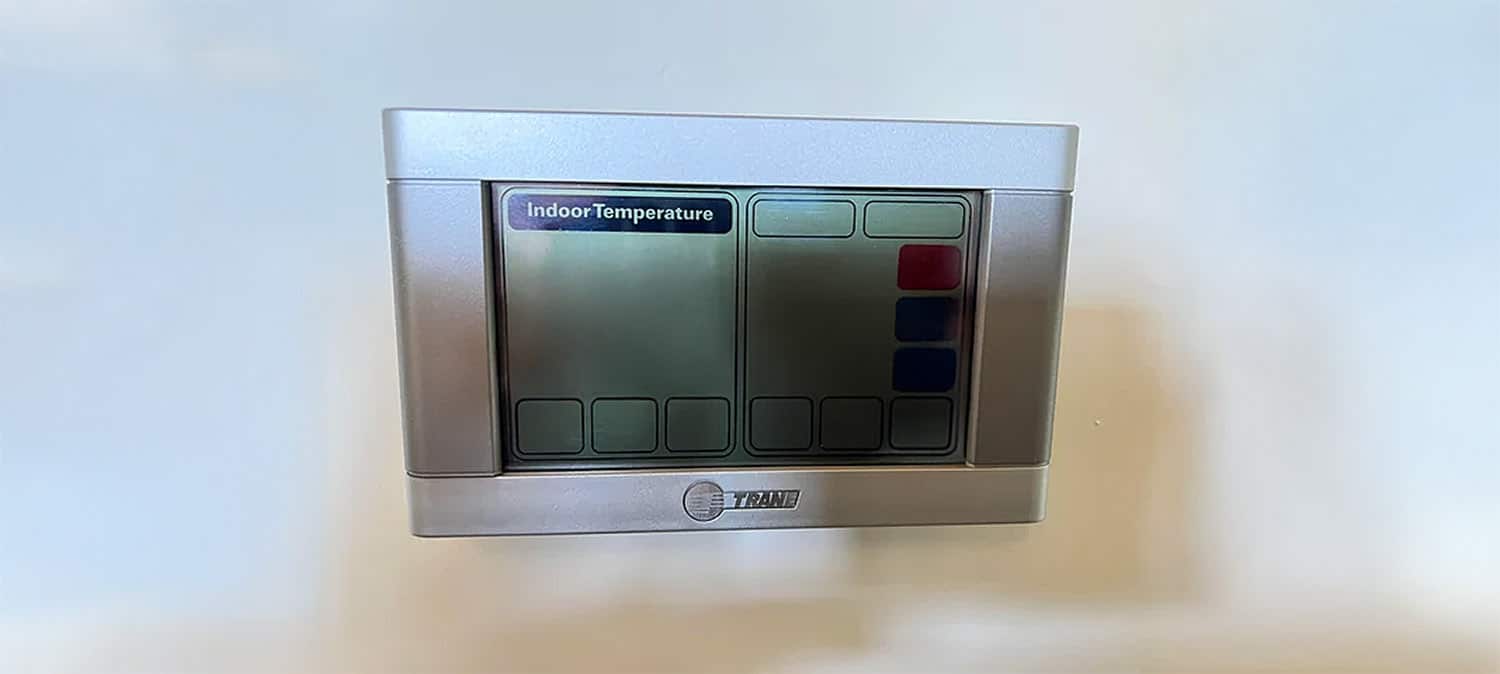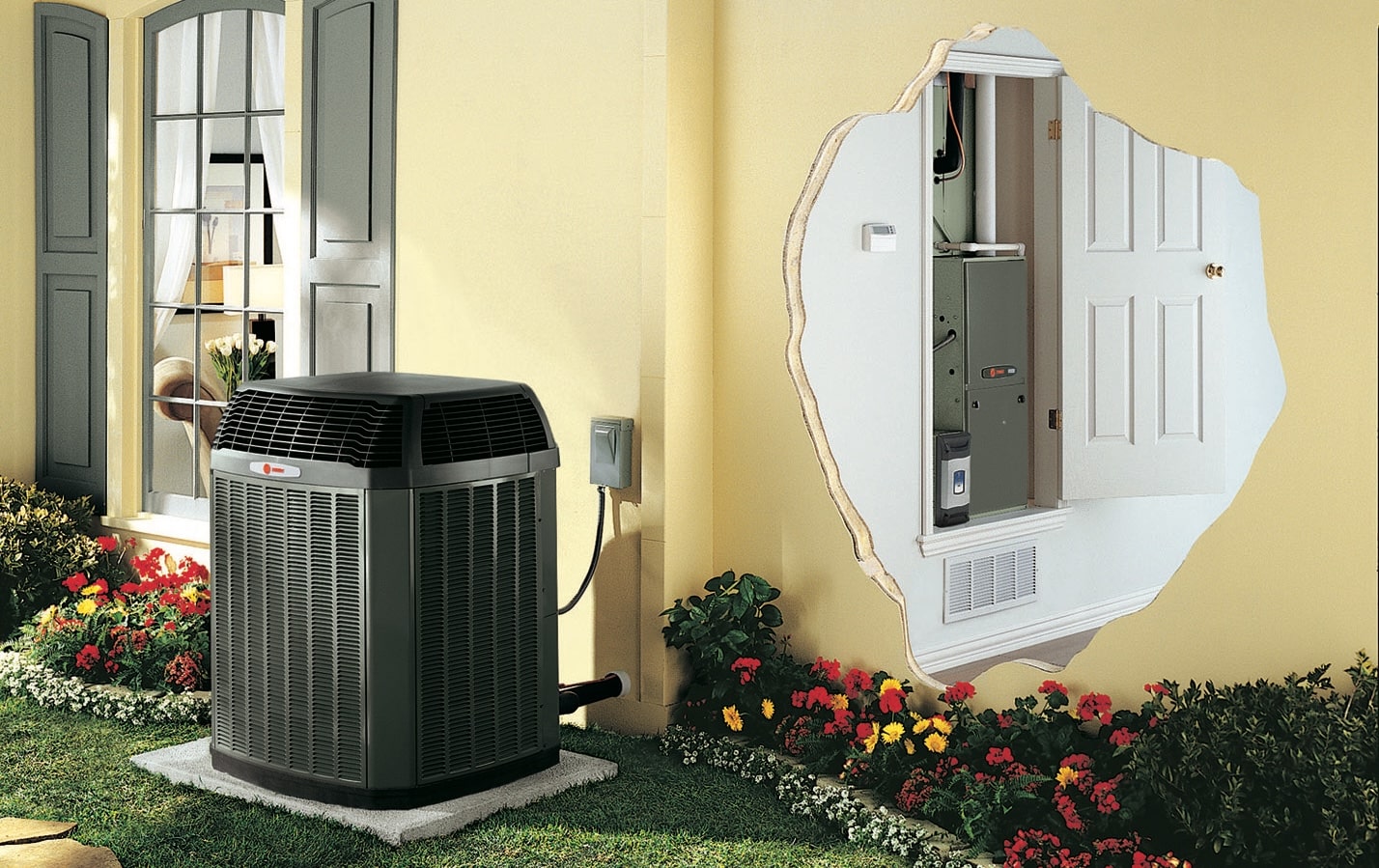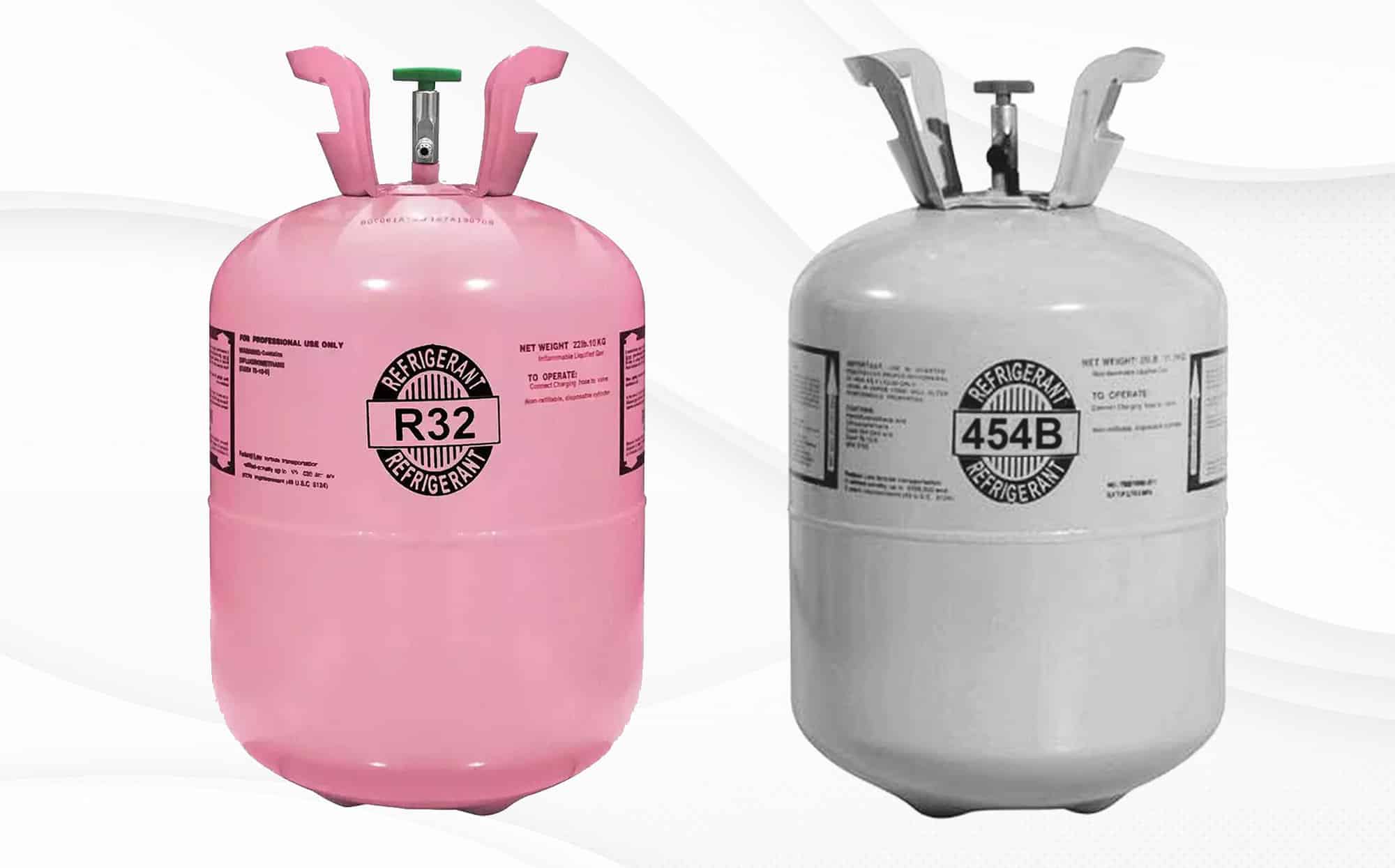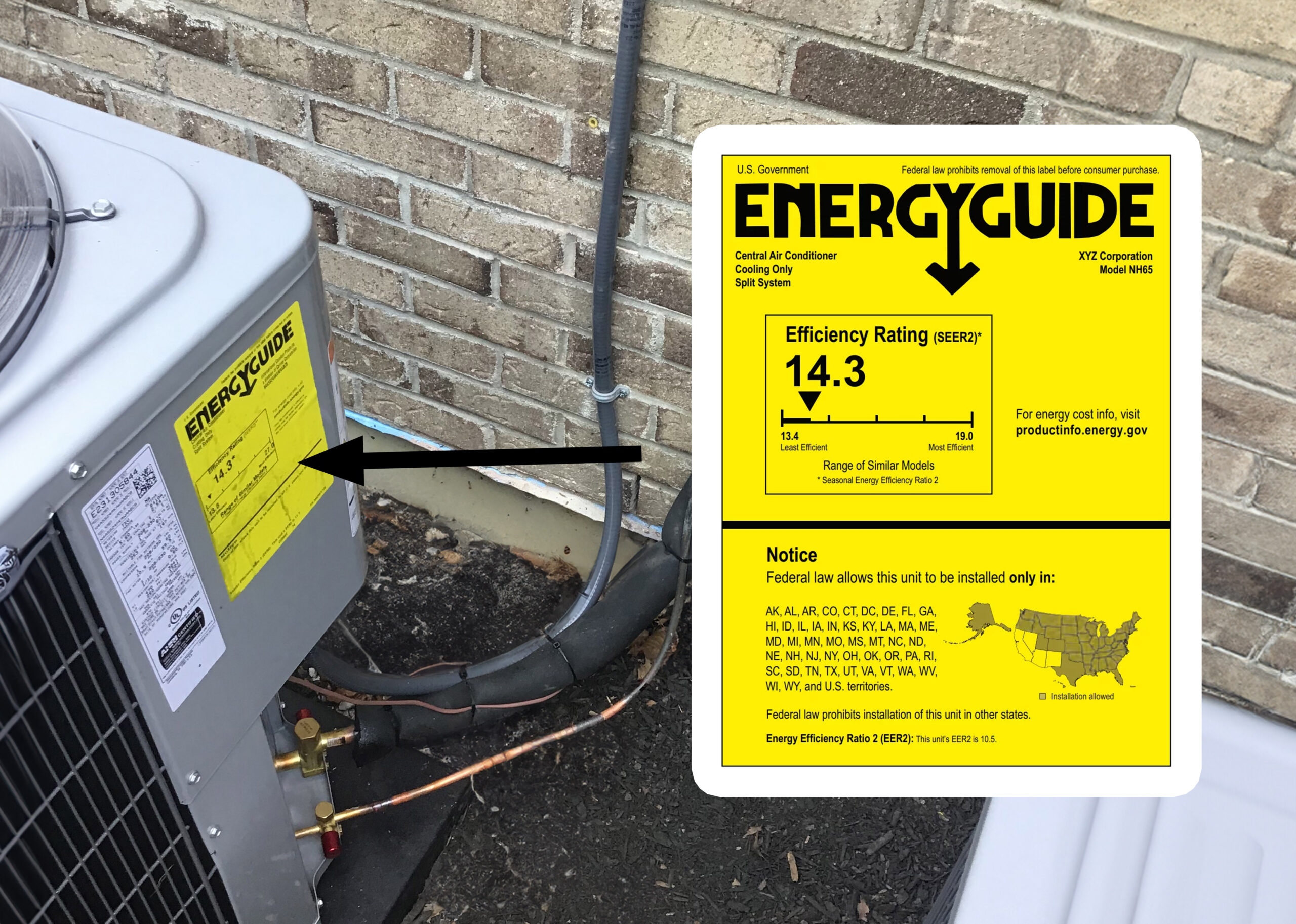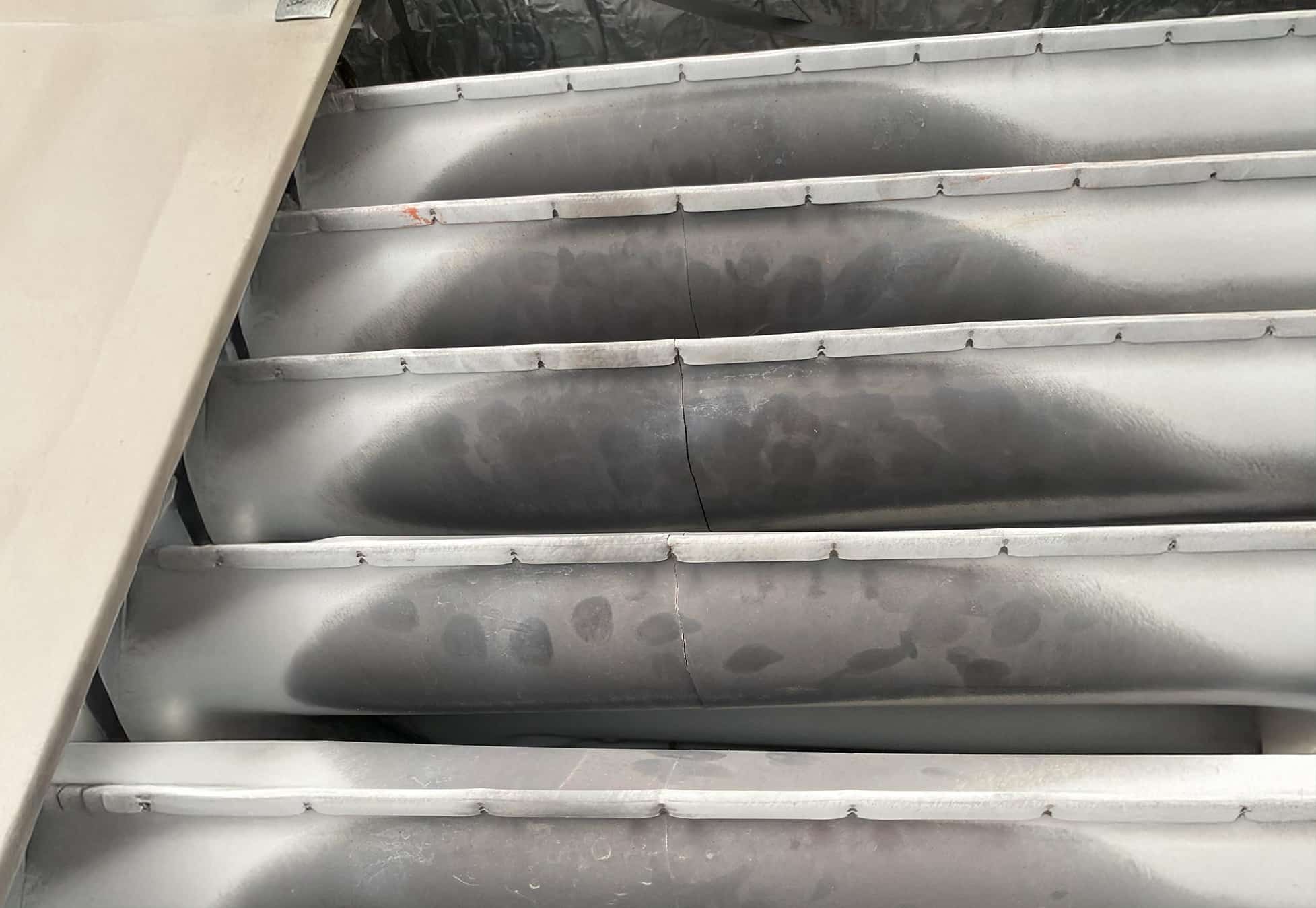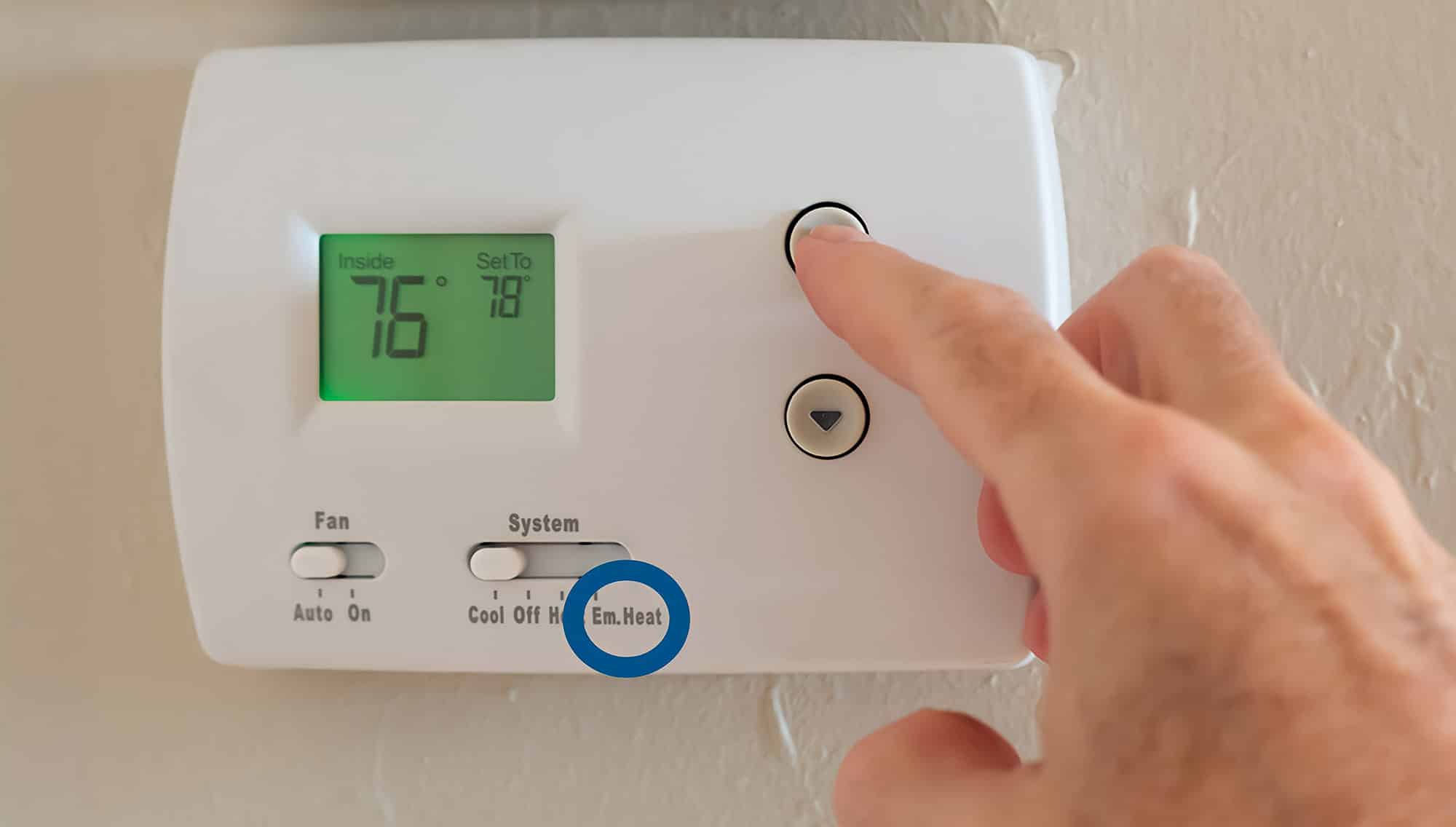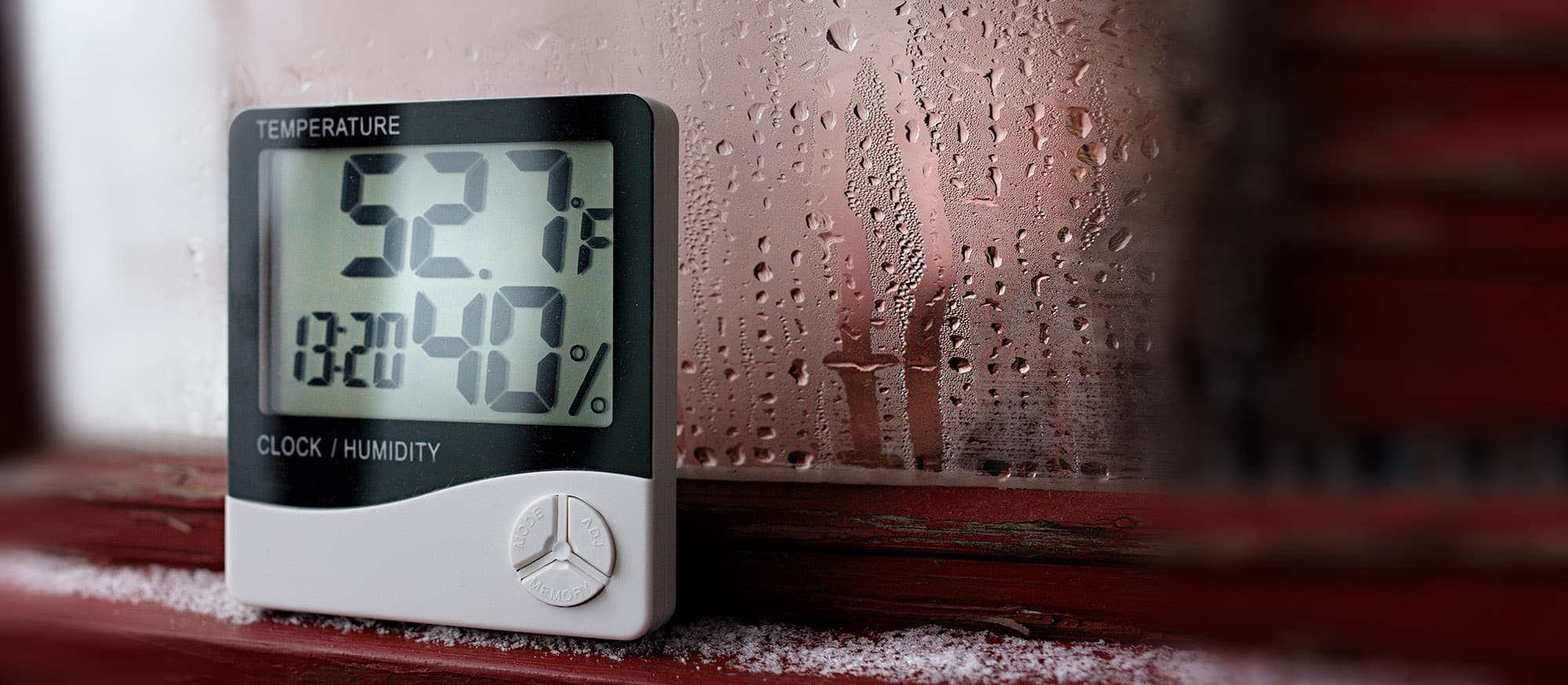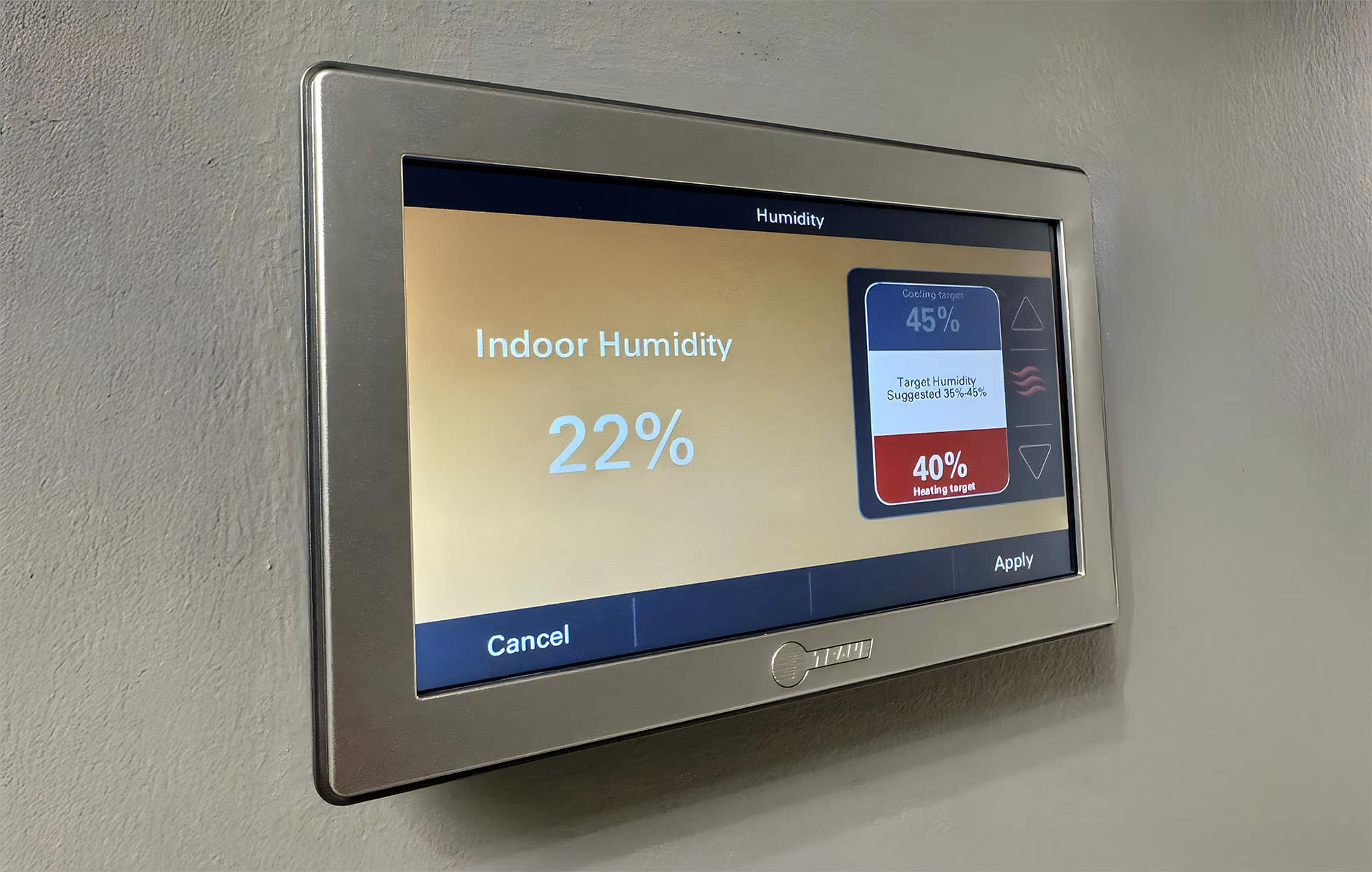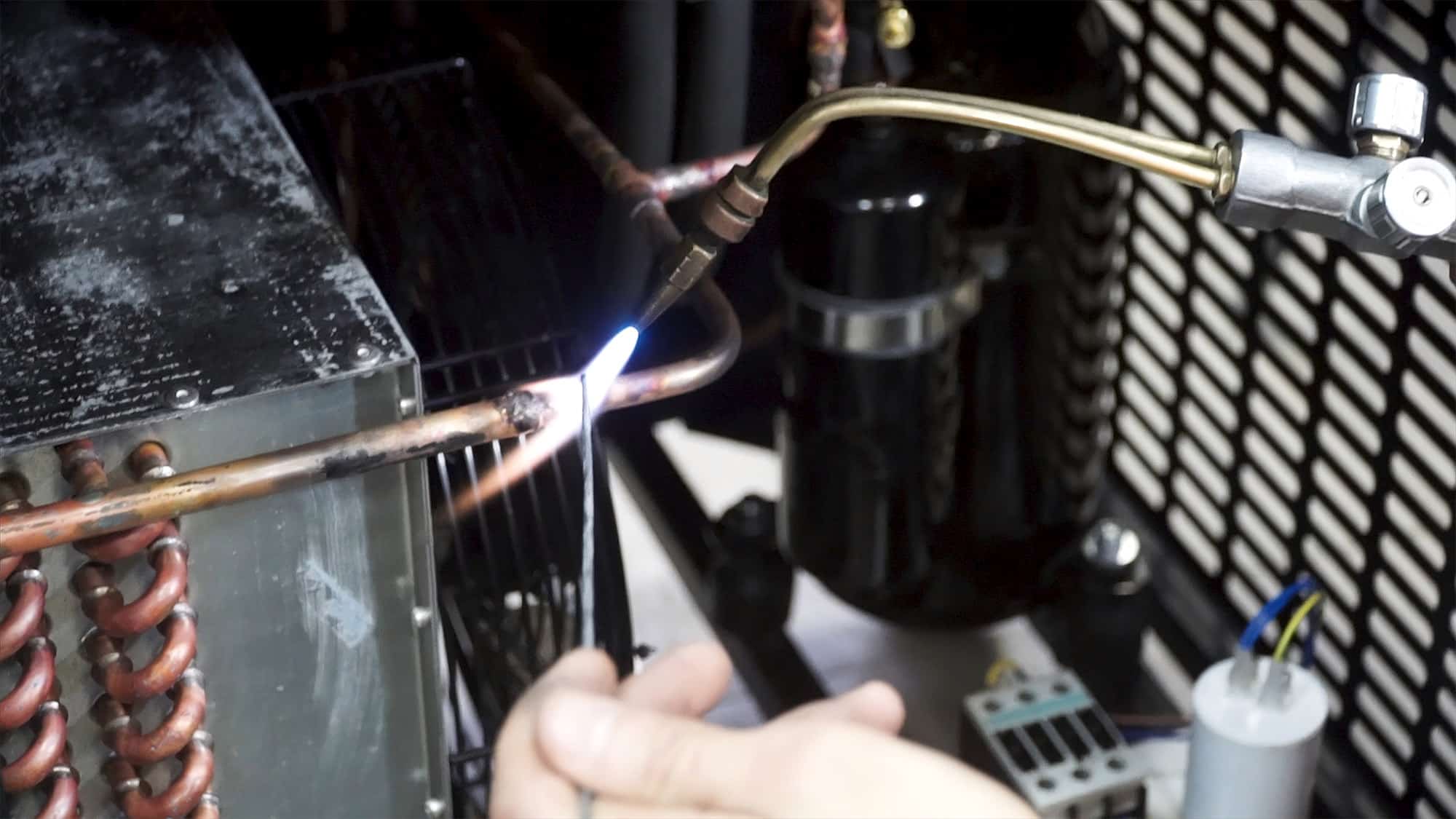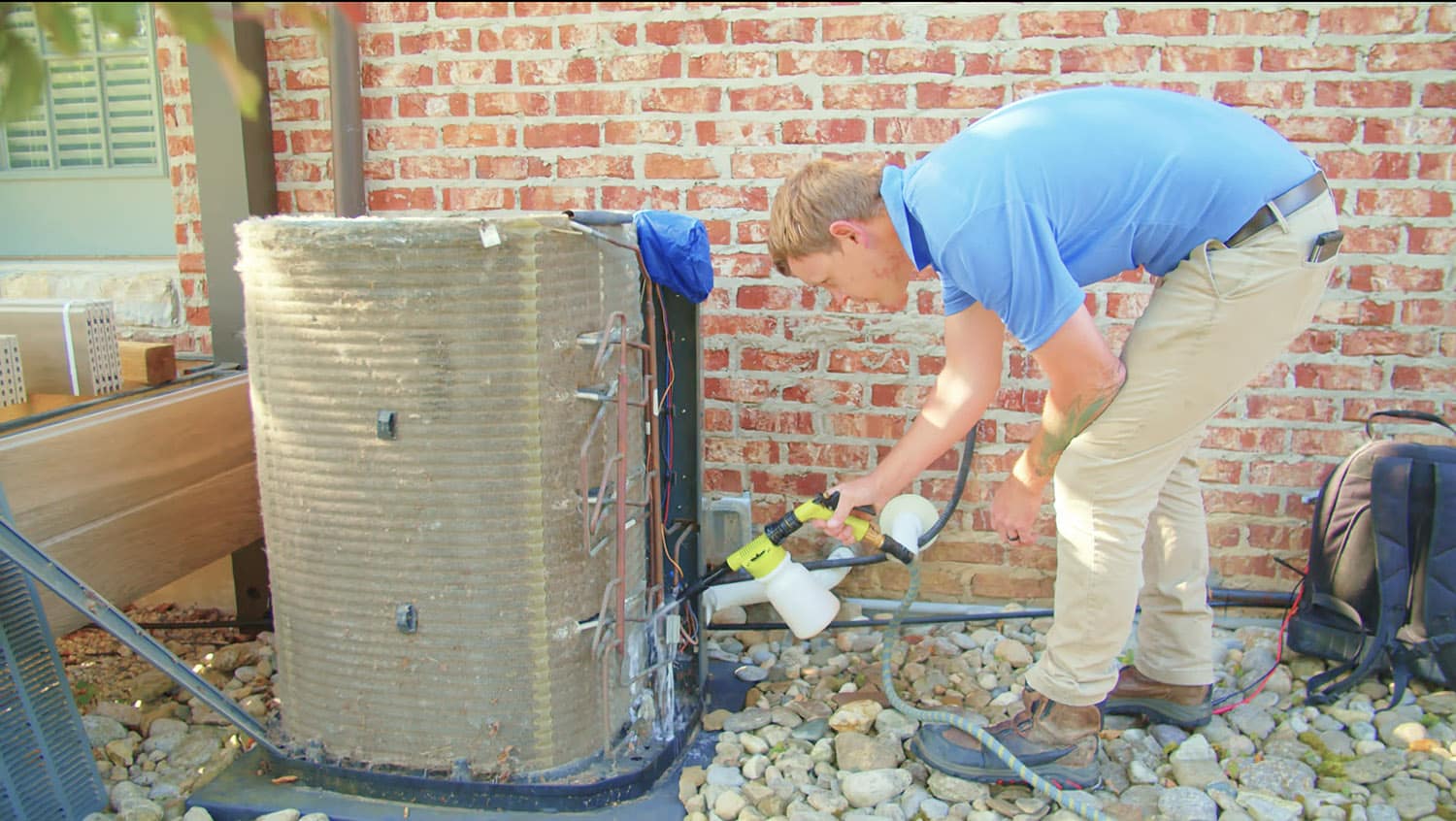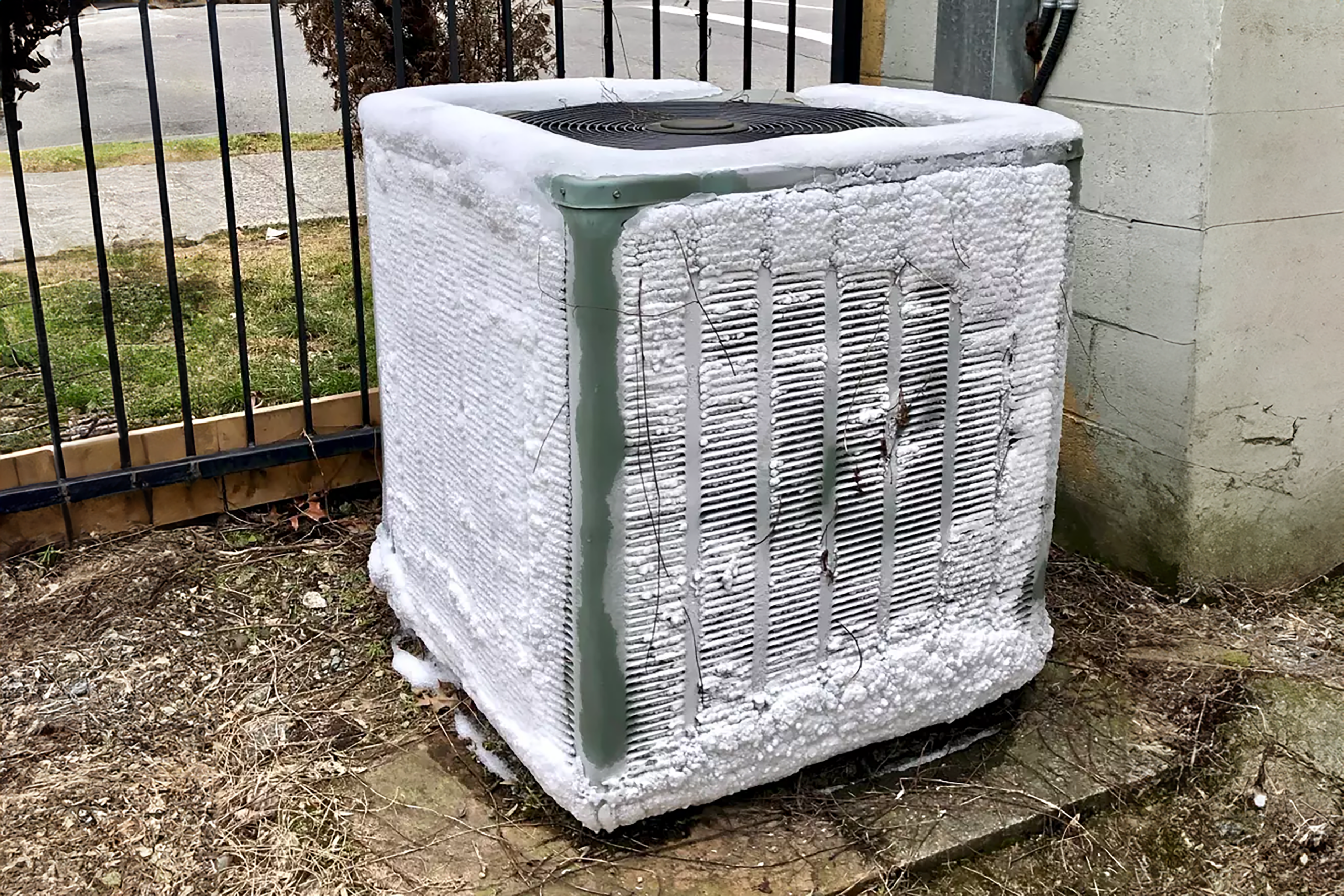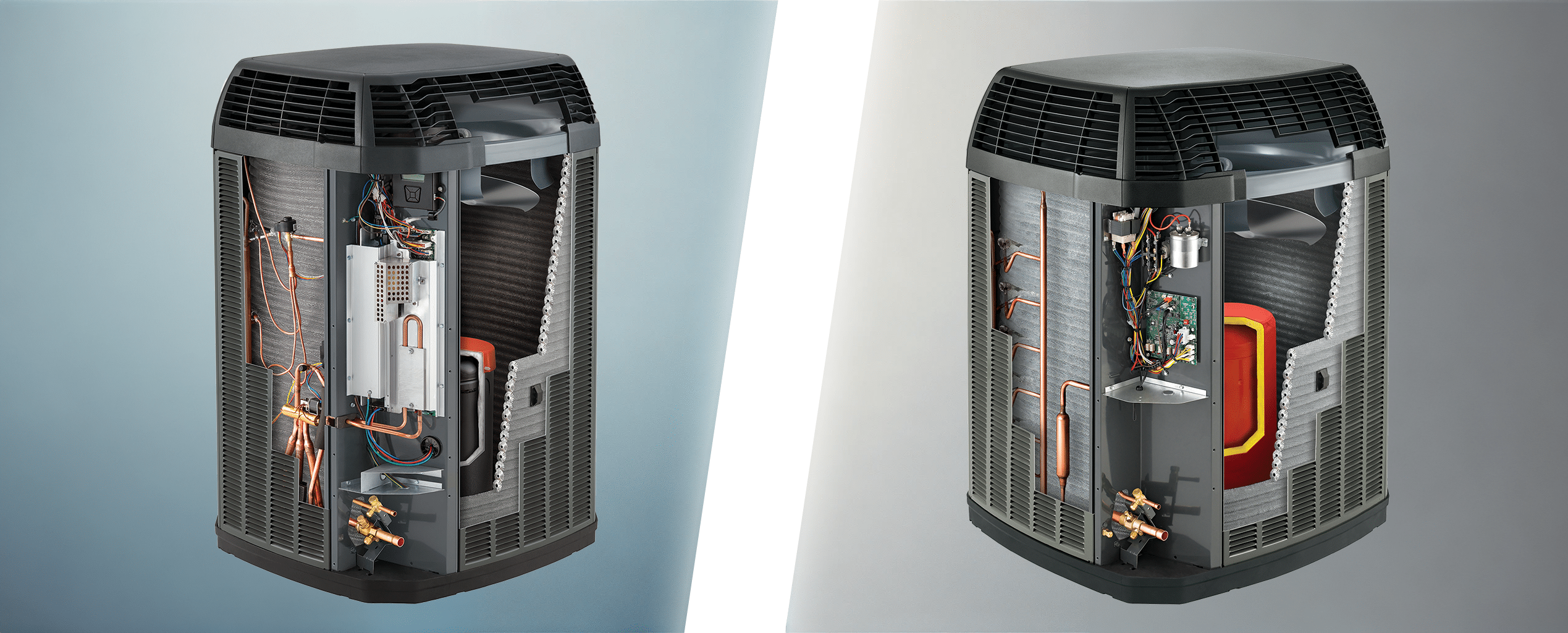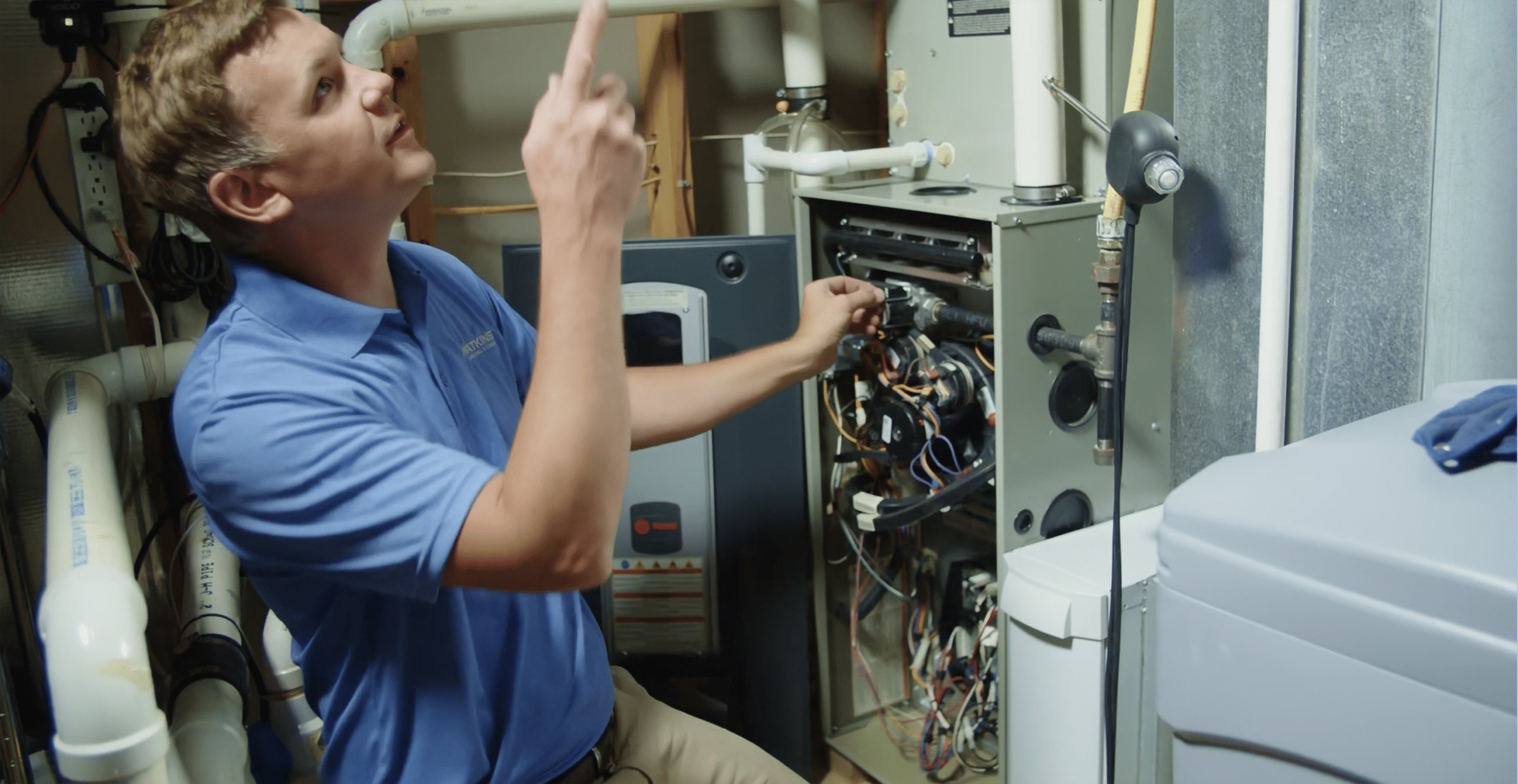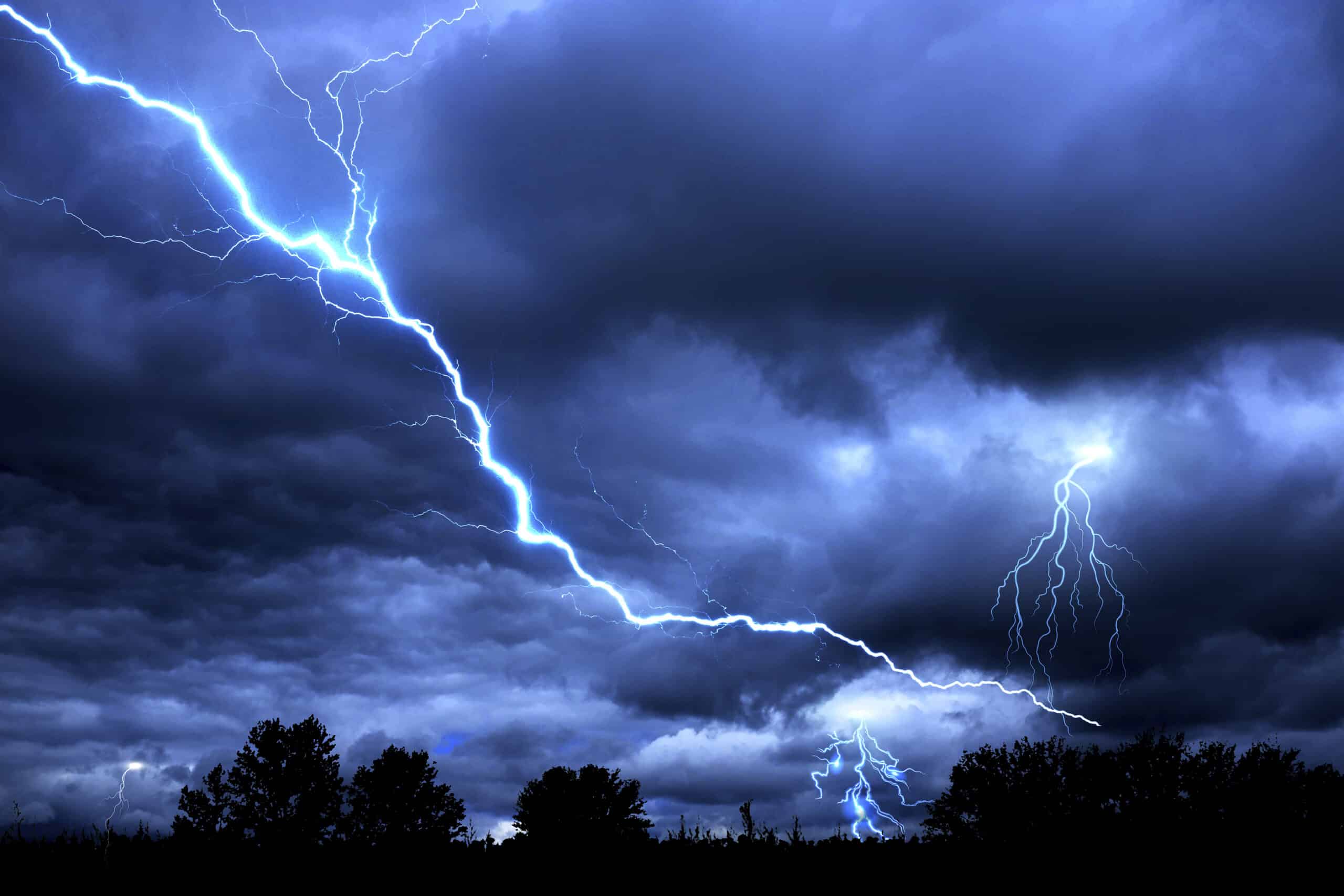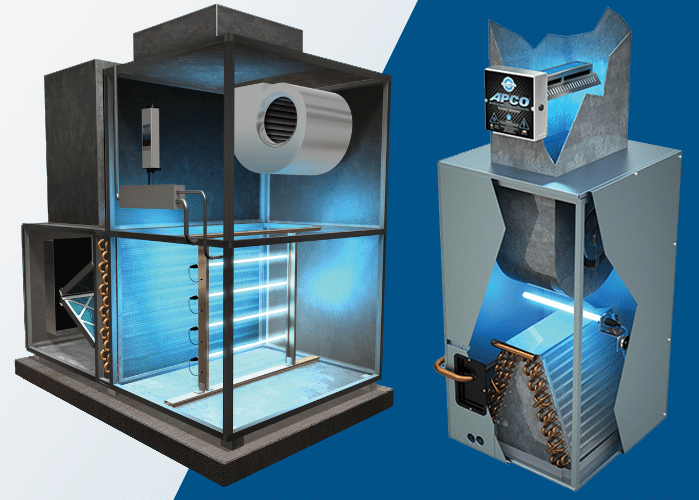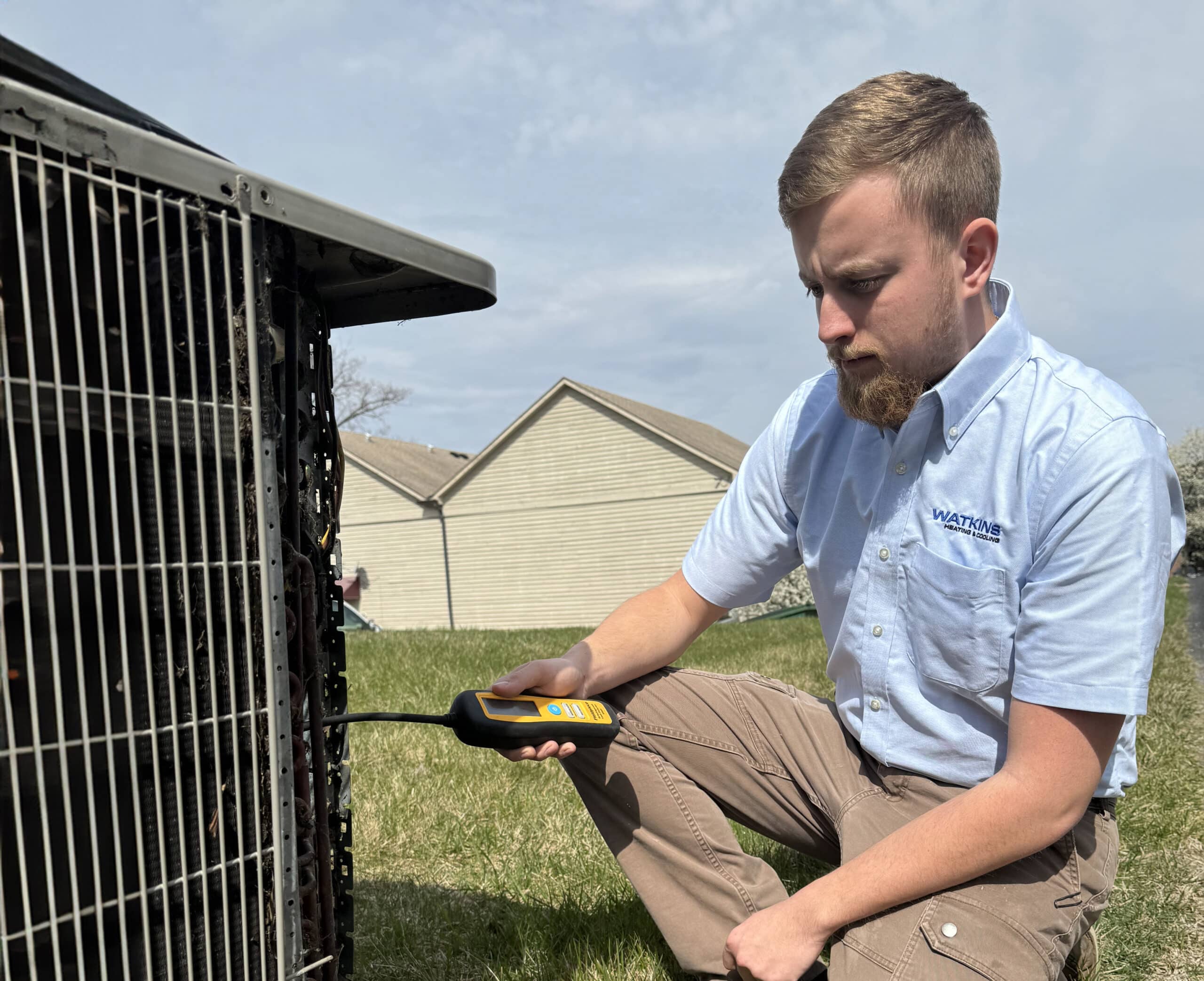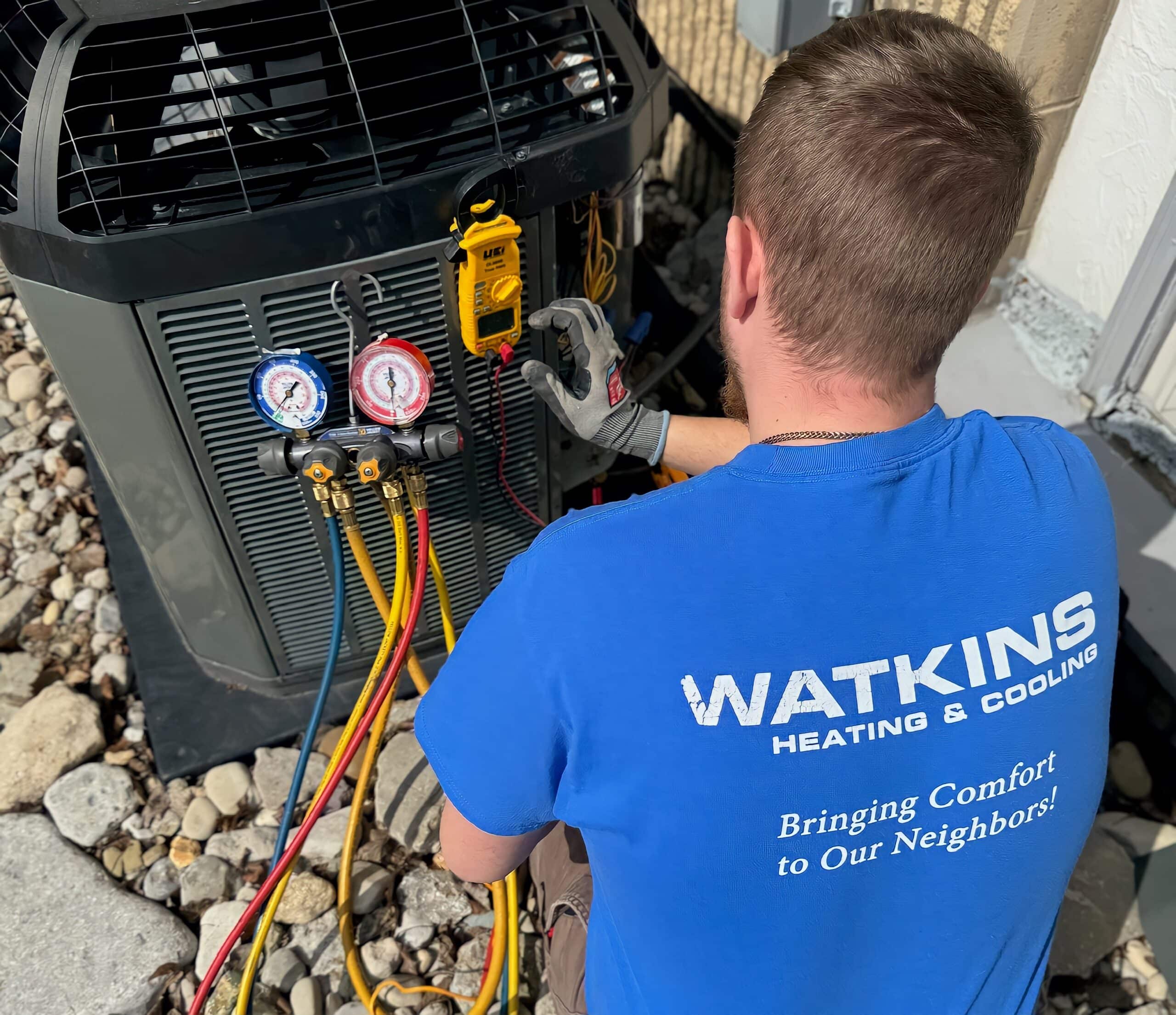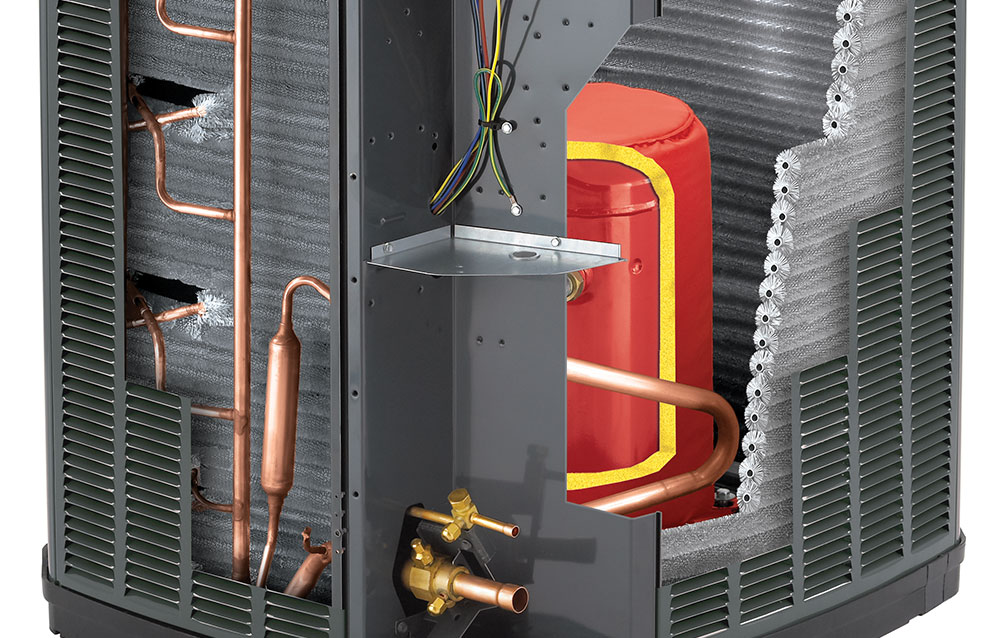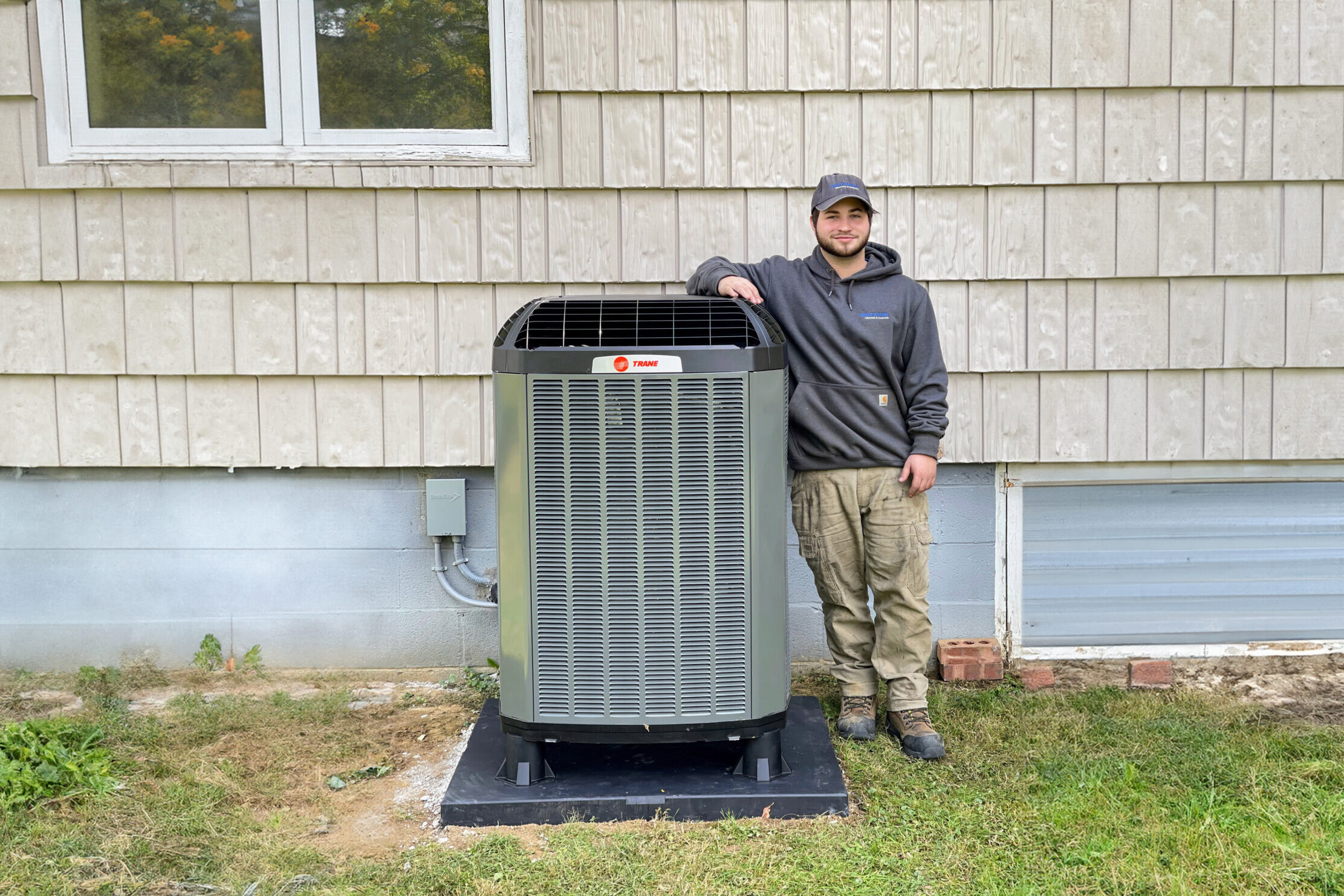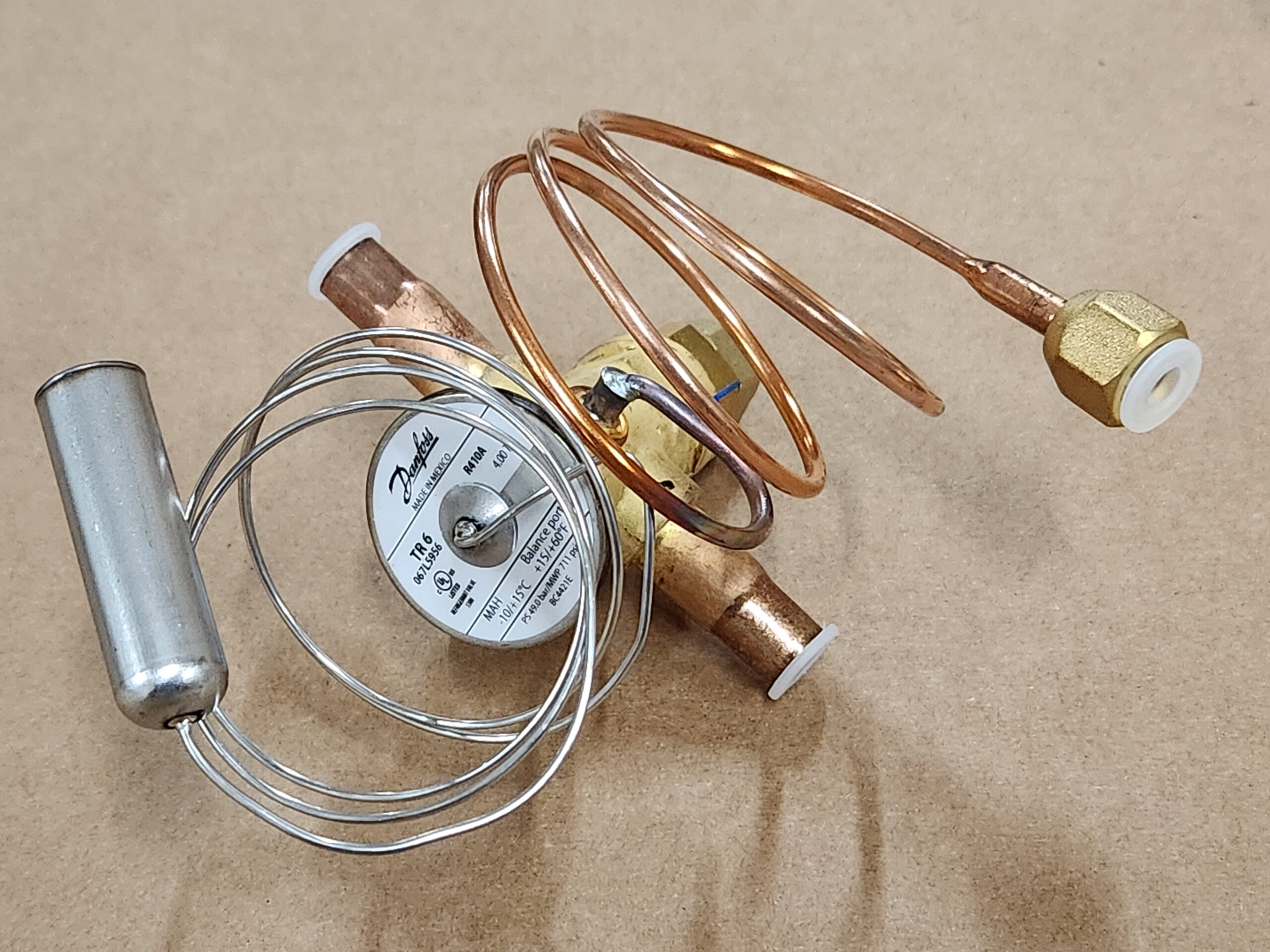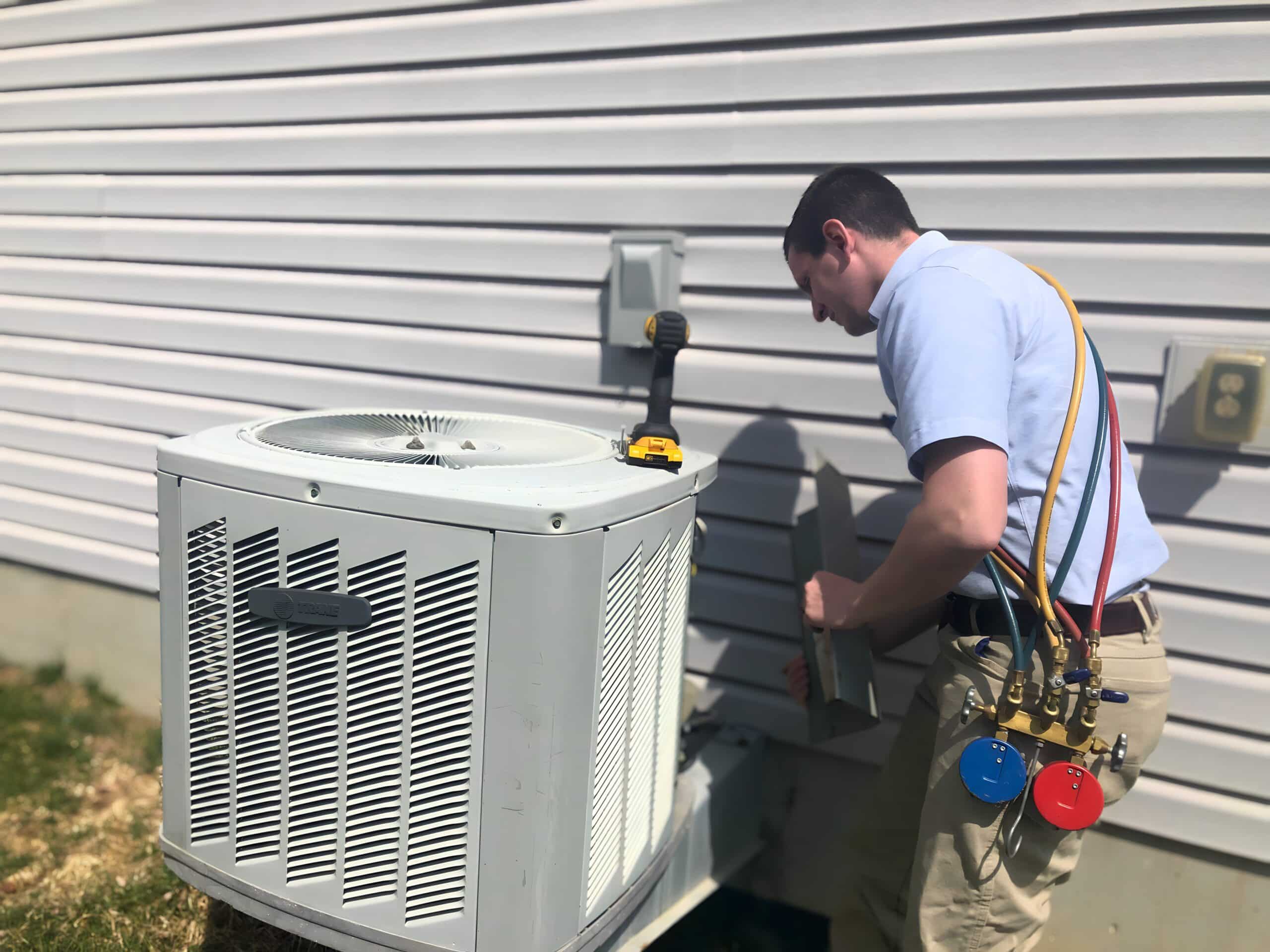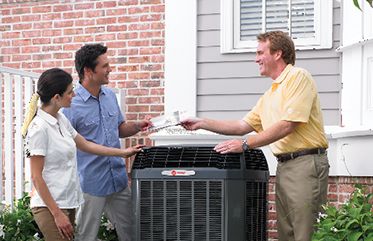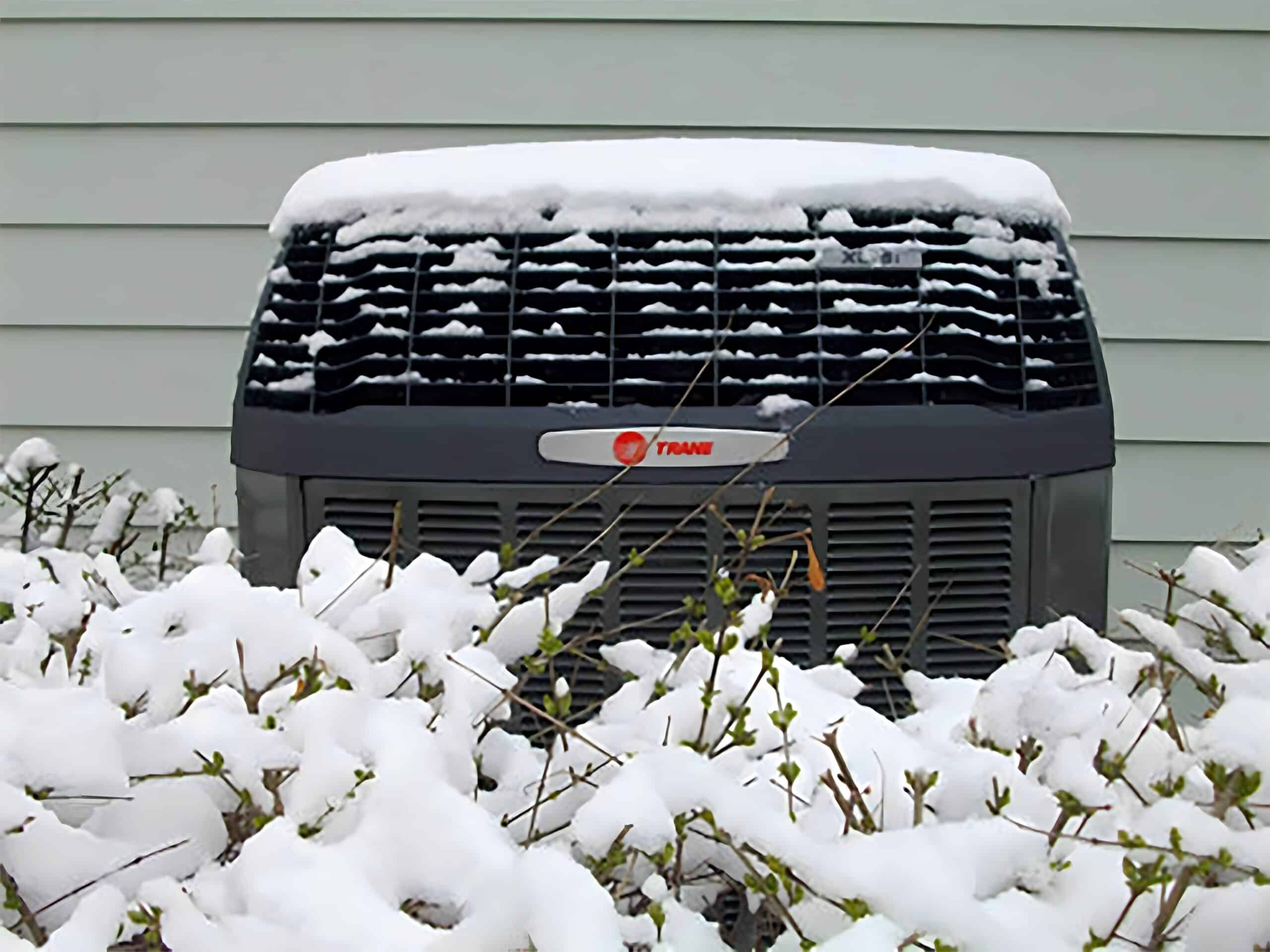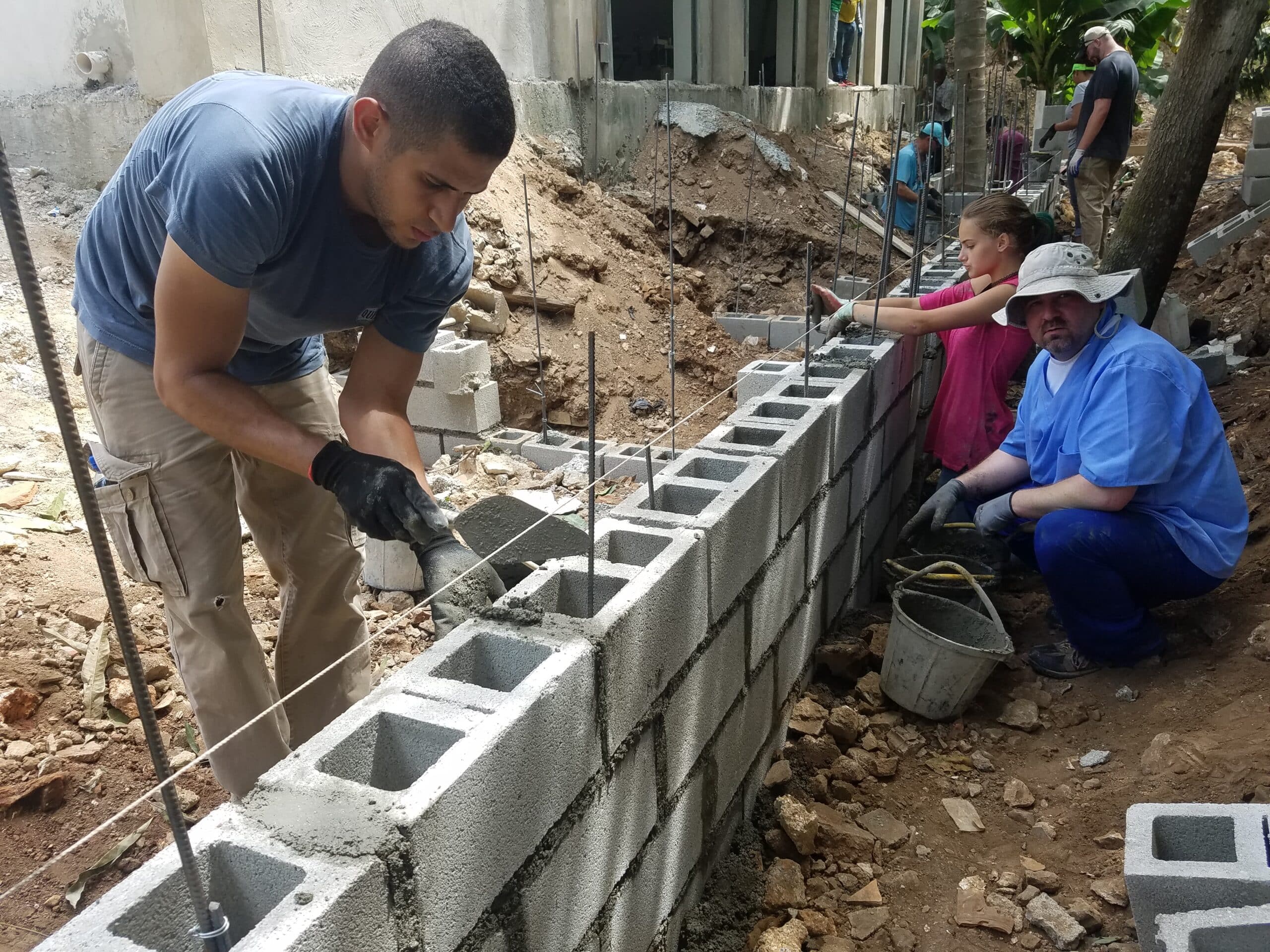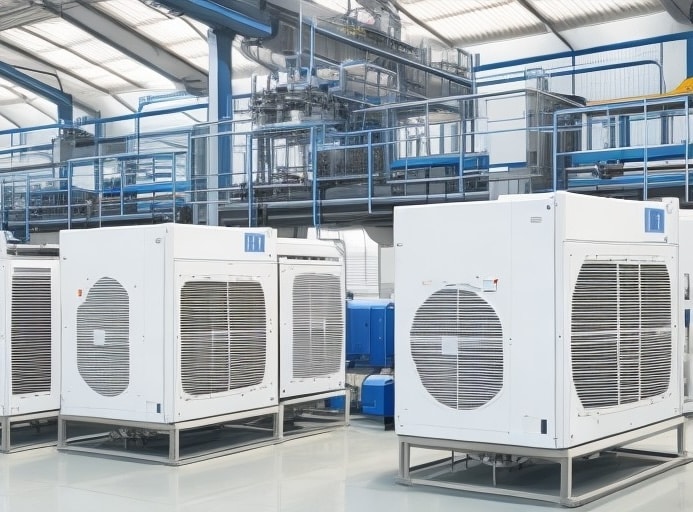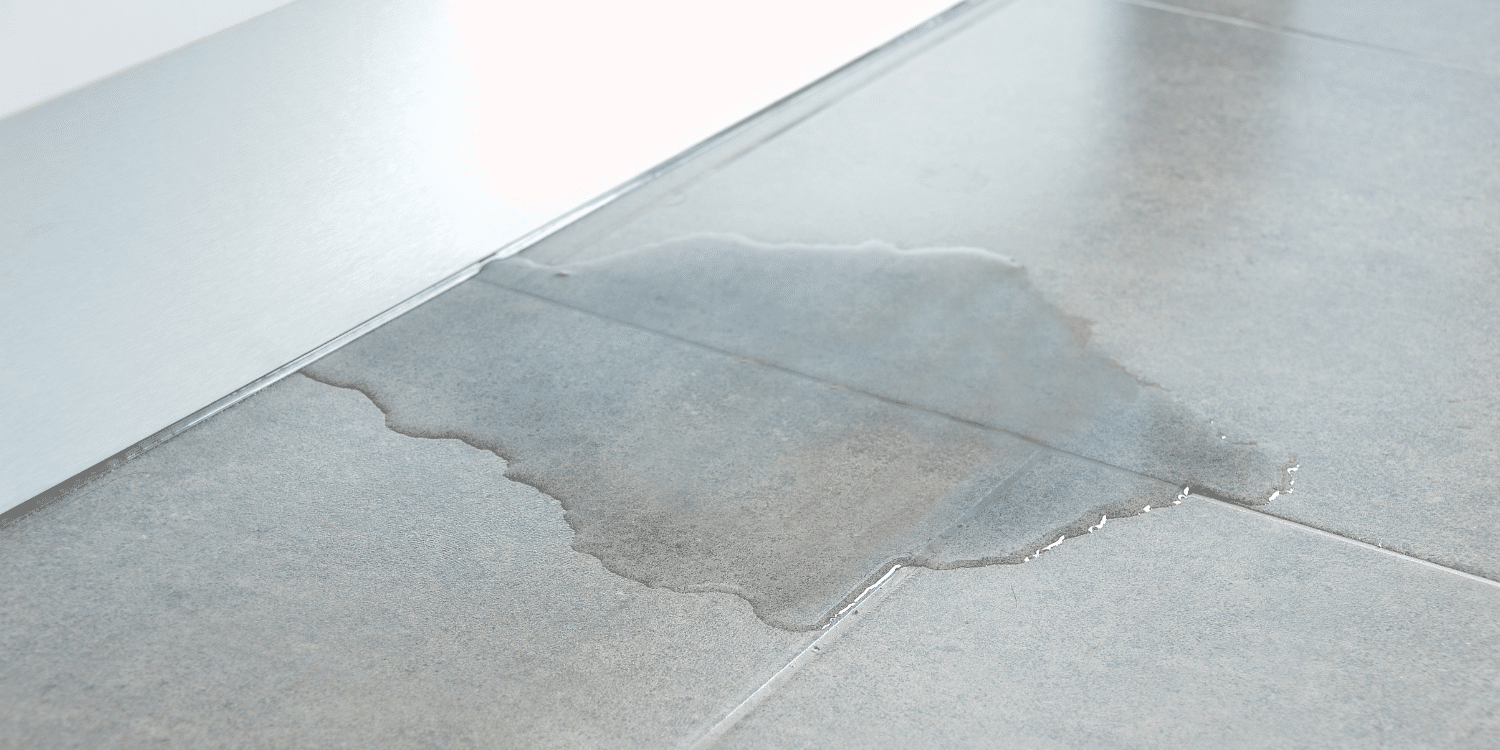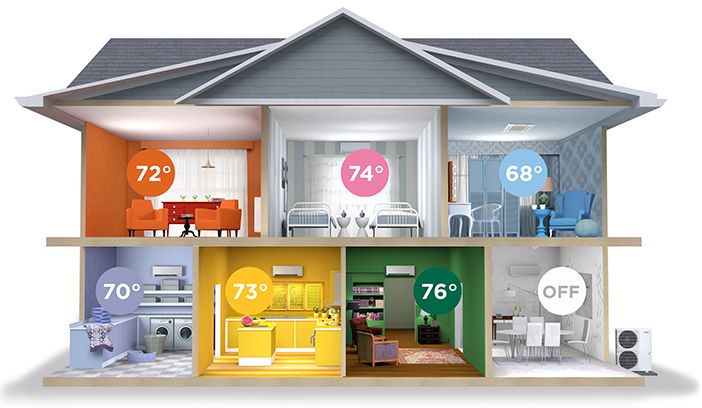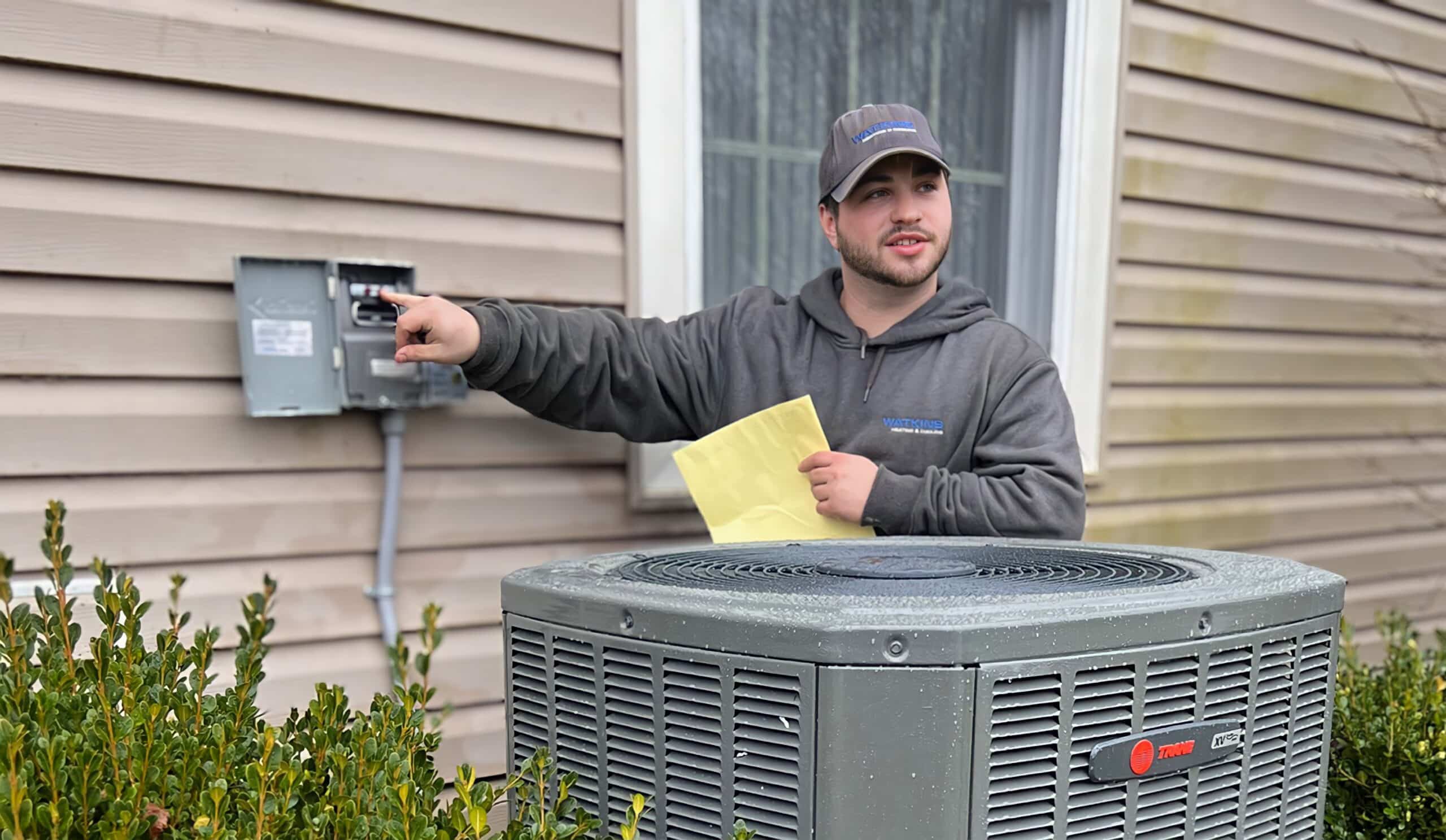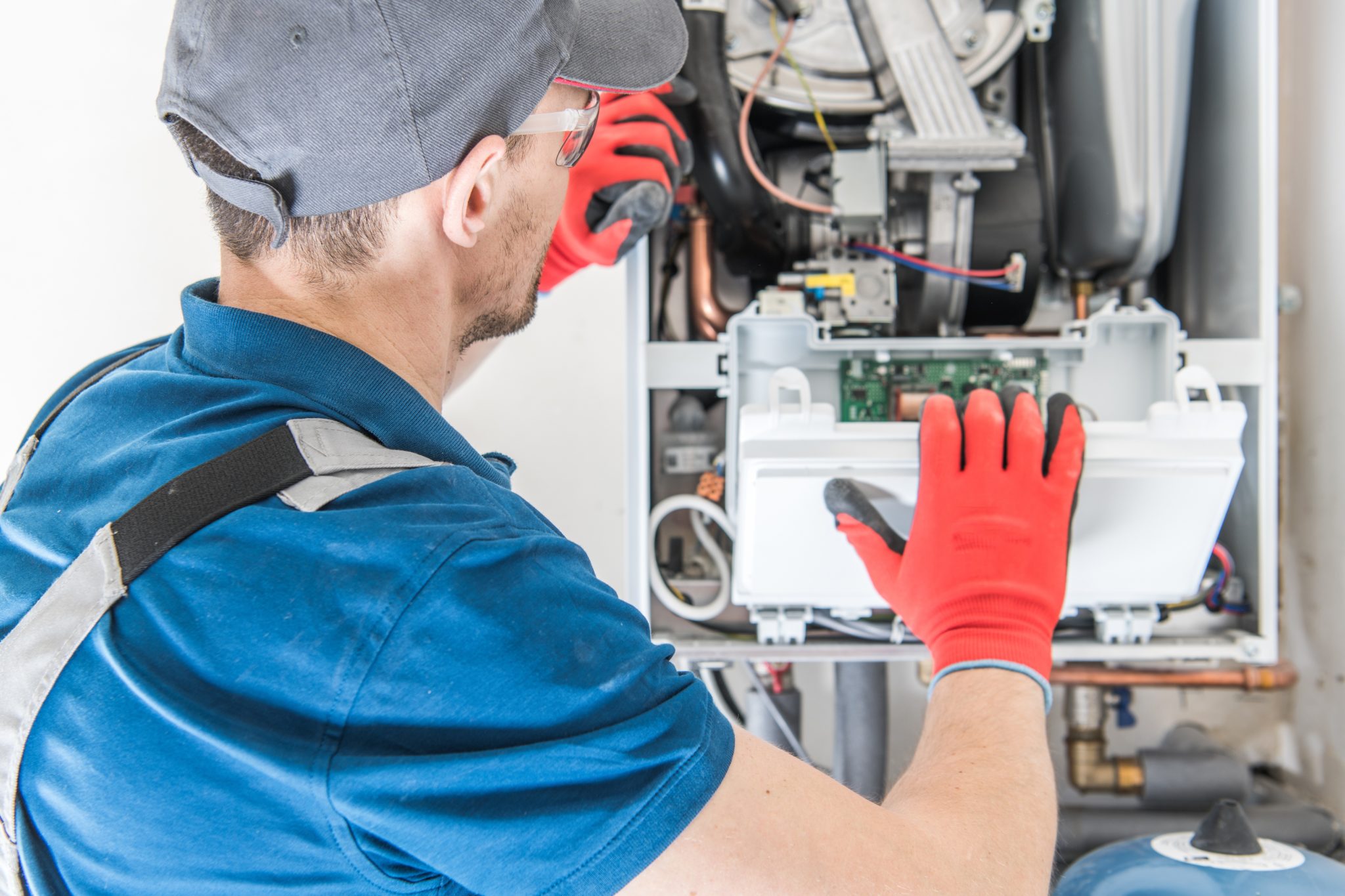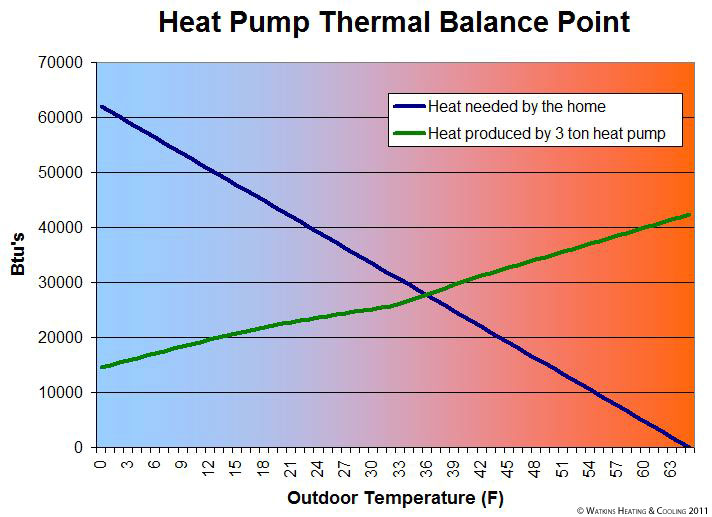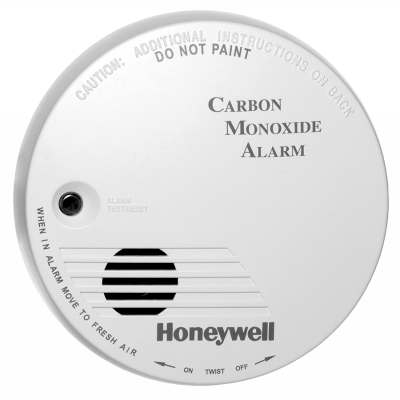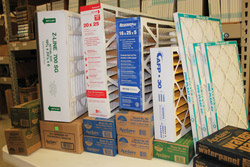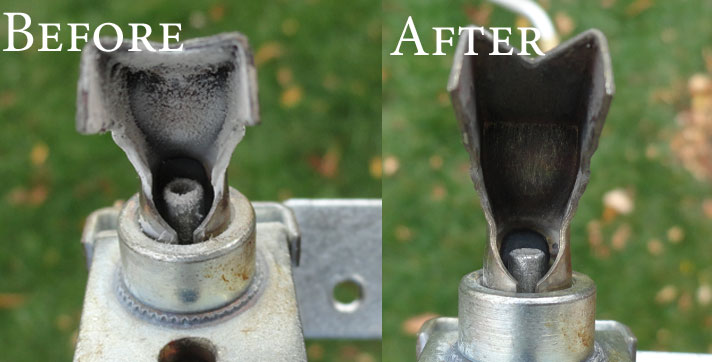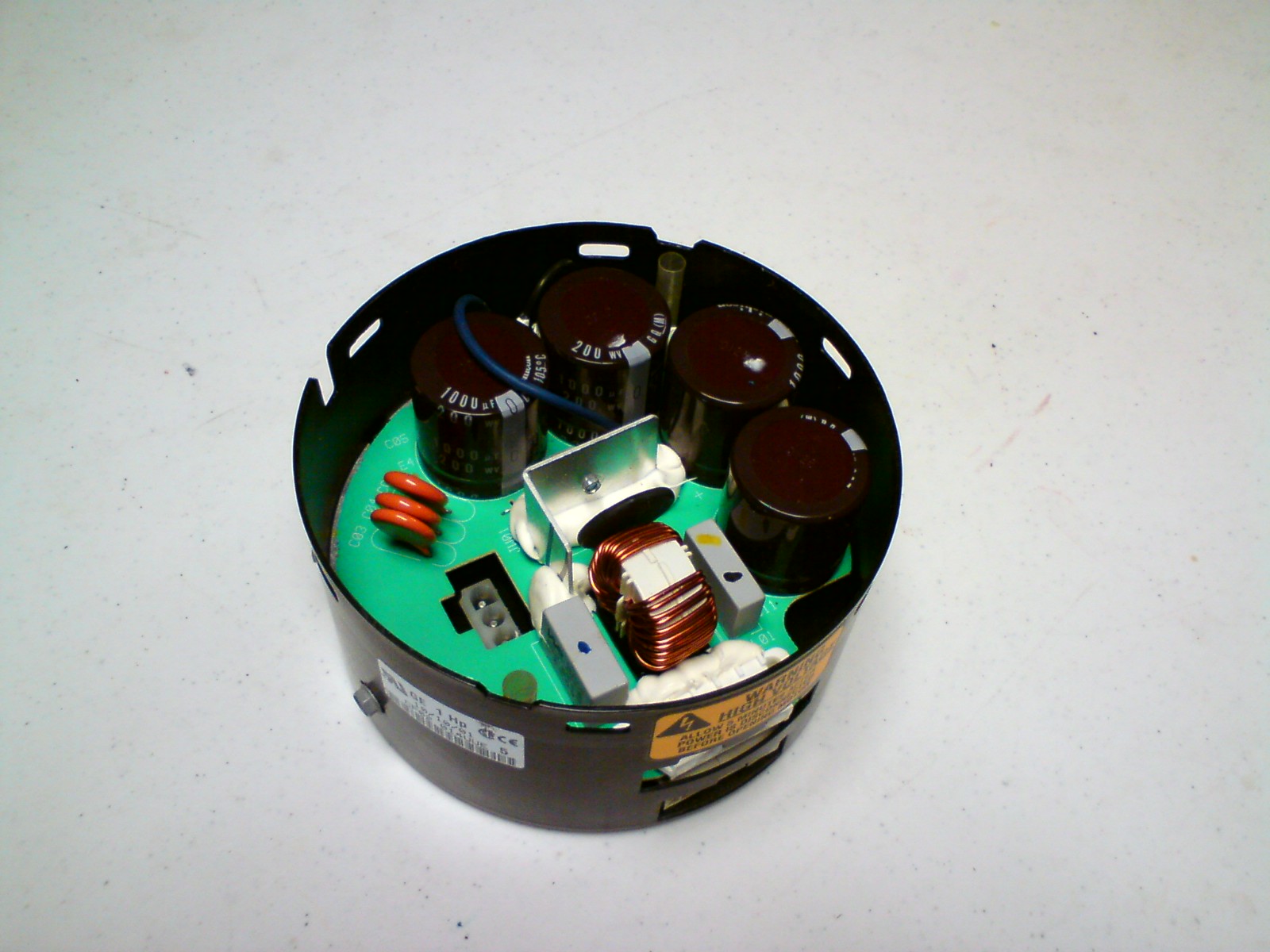What Is Refrigerant Used in Home A/C Units?
Refrigerant is the lifeblood of your home’s air conditioning system. It circulates between your A/C’s indoor evaporator coil and the outdoor condenser coil, transferring heat energy. We think of an air conditioner as pumping cool air into our homes, but in reality, the job of the air conditioning is to remove heat from a room. Essentially, refrigerant is a fluid that goes through a constant cycle of evaporation and condensation, absorbing heat from your house’s indoor air through the evaporator coil and then transporting it outside to the condenser coil, where it releases the heat to the outdoor air.
Are Refrigerant and Freon the Same Thing?
The average person knows refrigerant by the name “Freon,” though these two terms are not quite the same thing.
Refrigerant is a broad word for the chemical substances used in cooling mechanisms like refrigerators and air conditioners. These substances change phases from liquid to gas to absorb and release heat.
Freon is a refrigerant brand name. More specifically, it’s the trademarked brand for most refrigerants made by the Chemours Company. Originally, Freon was synonymous with R-12 and R-22 which have been phased out because of their impact on the ozone layer. Other registered trademarks for refrigerant include Puron (owned by Carrier), and Genetron (owned by Honeywell). This is the reason HVAC guys use the more accurate term, refrigerant, instead of Freon. We’re not trying to sound technical or confuse people!
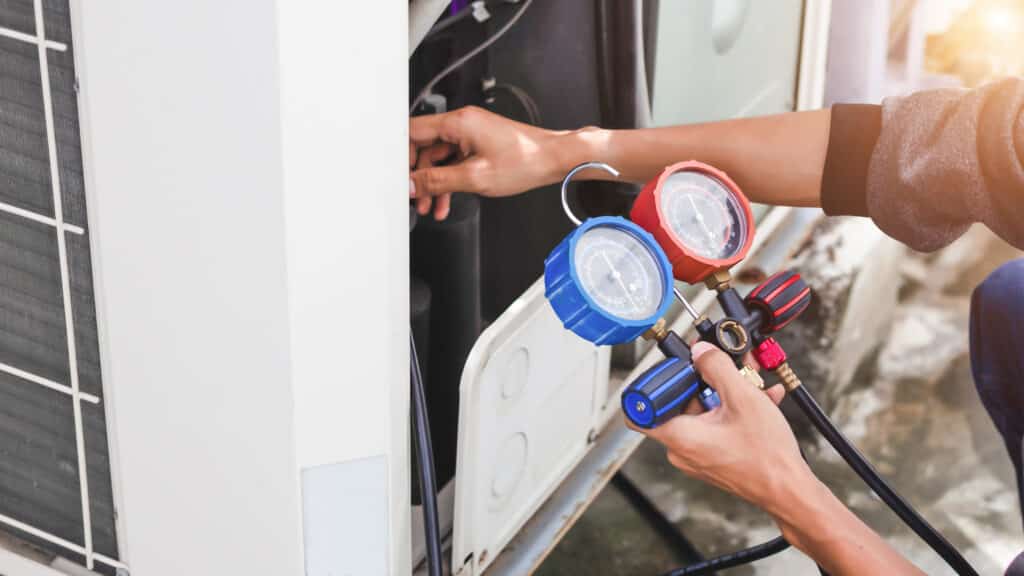
What Type of Freon is Used in Home Air Conditioners
Homeowners often ask us, “Is there just one type of refrigerant?” In actuality, there are hundreds of different kinds of refrigerants, especially in industrial cooling applications. To put it simply, you will find different kinds of refrigerants based on the year the air conditioning system was made.
For example, R-122 and R-22 were invented in the 1930s to replace ammonia which can be very dangerous. R-12 was the most widely used in automotive air conditioning, refrigerator, and freezers. R-22 refrigerant is very similar, but boils at a different temperature, making it perfect for home air conditioning systems and heat pumps. Both R-12 and R-22 refrigerants were part of Dupont’s trademarked brand of Freon (later Chemours Company).
For the last 75 years, R-22 was the standard refrigerant used in home air conditioning systems in the United States. Later we discovered that CFCs pose a potential threat to earth’s ozone later. In 1987, a treaty was signed by most of the developed world called the Montreal Protocol. This began a phaseout period leading to a full ban on all CFCs and HCFCs, including R-12 and R-22. As a replacement, the HVAC industry agree to adopt R-410A as the new standard.
The new R-410a refrigerant was invented by Honeywell, and branded with the trademarked name Puron by Carrier Corporation as a symbol of the move toward more sustainable refrigerants. You may still see the old Freon, R-22, in older systems, but manufacturers have not used it for about 20 years. Production of virgin R-22 was banned as of January 1, 2020, but we still have recycled R-22 available to service older systems, it’s just very expensive. Today, you will find R-410a used in every newly installed home air conditioning system in the United States.
Each type of refrigerant varies in its energy efficiency, Ozone Depletion Potential (ODP) and Global Warming Potential (GWP), and the A/C manufacturers work together with the EPA to adopt more environmentally friendly refrigerants as technology advances. The current standard, R-410A refrigerant, was chosen because it’s harmless to the ozone layer, even though it has a high global warming potential. It was the best we could do at the time. The previous standard, R-22 refrigerant, was actually more efficient at heat transfer, but the damaging effect of its chlorine on the ozone layer led to the change. In 2024, the industry will be shifting to yet another new refrigerant that maintains a zero ODP while greatly reducing the GWP compared to R-410a. Some manufactures will adopt R-454b while others have chosen R-32.
While technical and confusing, the crazy changing world of refrigerant should not be a worry to homeowners. At Watkins Heating & Cooling, we work in many different applications other than home air conditioning, and we have to carry more than six different types of refrigerant! In March of 2024, we only use R-410a on new air conditioners, and we’ll begin the transition to R-454b and R-32 by the end of the year. We’ll cover these new refrigerants in a future article.
How Refrigerant Works in Central Air Conditioning Systems
So, how exactly does Freon make it possible for your air conditioning systems to cool your home? In essence, the refrigerant inside your air conditioner transitions back and forth between liquid and gas states, moving your home’s warm air outside. Here’s a quick, step-by-step look at that process:
- Cool Air: The refrigerant initially travels through the copper tubing of your indoor unit’s evaporator coil in liquid form. When warm air passes over those copper coils, the low-pressure liquid refrigerant absorbs the heat and blows cool air into your home.
- Transition Into Gas: While absorbing the heat from your house, the air conditioning refrigerant boils, changing from a liquid to a gas form. This low-pressure gas carries the heat through the copper tubing to your outdoor unit.
- Compression: The cool, low-pressure gas is now pumped up to almost three times the pressure by the air conditioner’s compressor. This concentrates the heat into a smaller space, dramatically raising the temperature.
- Remove Heat: Now high-pressure, high-temperature gaseous refrigerant passes through the condenser coil where the condenser fan blows outside air over it to absorb the unwanted heat.
- Transition Back Into Liquid: As it sheds its heat, the gaseous refrigerant cools down, and condenses back to a liquid form, moving back into your indoor unit to start the cycle again from the top. This is how refrigerant creates cool air in your home.
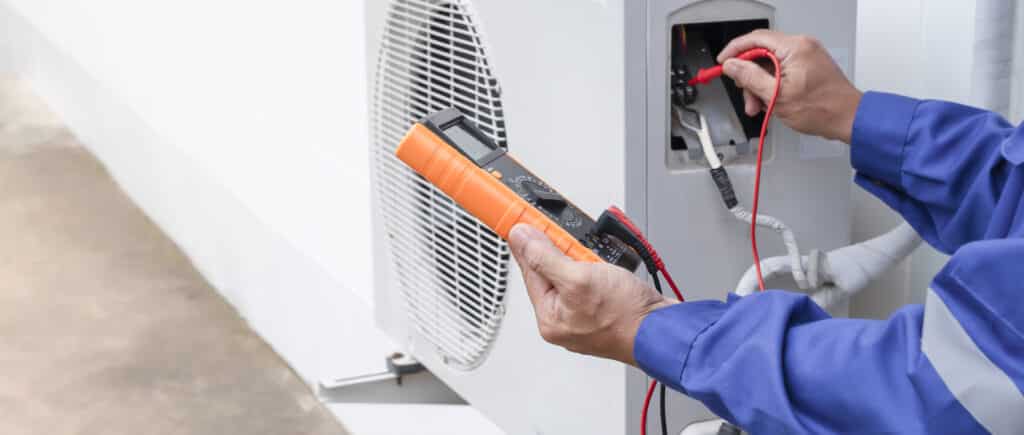
Is It Common for Refrigerant to Leak from Air Conditioning?
In most cases, if our HVAC customers are researching the topic of Freon, they’re concerned about a refrigerant leak in their air conditioning systems.
Unfortunately, Freon leaks are quite common. In fact, our HVAC technicians identify this as one of the top five issues we see from Dayton, Ohio homeowners in the summer. When our customers call us to report that their air conditioner isn’t working and they have uncomfortably warm air, we often find the issue is low Freon levels. And in many cases, these low levels are because of a refrigerant leak. Luckily, there are steps you can take to prevent them.
Can Freon Leak When the AC Is Off?
One of the most common questions we get from customers concerning refrigerant is, “Can I get a leak even when my AC is off?” Simply put, refrigerant can still leak when air conditioning systems are turned off. When homeowners learn their system has a refrigerant leak, they often delay the repair thinking it won’t leak during the winter while their AC unit is turned off. Unfortunately. this is not the case.
In our article about the causes of Freon leaks, we explain in detail the most common causes of refrigerant leaks and what it takes to repair them. An air conditioner refrigerant system is always under pressure, even when it’s not running. So if your system has a leak, it will leak throughout the winter, leaving you hot and humid when summer temperatures return. In fact, there is actually lower pressure on the evaporator coil when the air conditioner is running, so it leaks slower when it’s on. If you do have the less common leak in the condenser coil of your outdoor unit, this will leak faster when the air conditioner is running since it is the high pressure side of the system. Either way, if you have a refrigerant leak, it will continue leaking while both on and off.
Does Air Conditioner Refrigerant Smell?
It’s very common to think that you can smell refrigerant, especially when it leaks, but this is somewhat of a misconception. In reality, refrigerant used in home air conditioning are all odorless and colorless. So, if you do have a leak, the air conditioner refrigerant itself will not produce any smell that you will notice.
However, it is possible that you smell something coming from your leaking AC unit. In addition to refrigerant, your sealed air conditioner system also contains oil to lubricate the compressor. If the lineset or evaporator coil is leaking, it will leak oil as well as Freon. If the compressor has been overheating, the oil will develop a pungent smell from cooked bearings and burnt oil. Some say it smells like garlic. I think it smells like burnt mineral oil!
Malfunctioning ac systems can also leak water or cause high humidity, resulting in moldy or mildew odors. So, the presence of an odor could indicate other issues with AC systems that need attention. If you do notice any unusual smells coming from your air conditioning unit, it’s always the right idea to have it inspected by a professional HVAC technician.
Can You Hear Freon if it Leaks?
Is Freon something you can hear if it begins to leak from your AC unit? While it’s possible that you can hear your refrigerant leaking, it is certainly uncommon. The vast majority of Freon leaks are imperceptibly small and release the air conditioner refrigerant at a very slow rate that does not produce any noticeable sound. Even for our expert HVAC technicians at Watkins, it typically requires very specialized equipment and a lot of time just to locate a leak.
Nevertheless, there are some uncommon scenarios where air conditioners have a larger refrigerant leak. If a larger leak occurs in your air conditioner, you may be able to hear a quiet hissing sound, whistling sound, or see bubbling coming from the leak as the high-pressure refrigerant leaves the opening. Only a very large would be audible, and would the entire refrigerant charge in just a few hours. This usually happens when compressor vibration causes a refrigerant line to suddenly break, spewing coolant and oil.
Note that some air conditioners make hissing noises as high pressure refrigerant flows through the piping. Just because you hear something doesn’t mean there’s a leak. If you do hear something abnormal with your air conditioning system, we recommend getting in touch with a customer service representative at Watkins Heating & Cooling to describe what you’re encountering. We’re here to help!
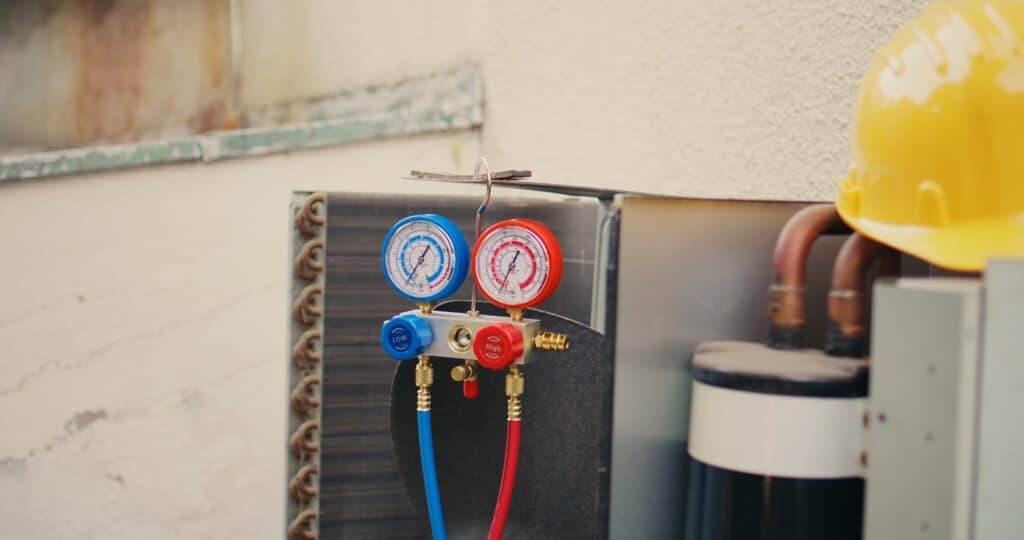
Can Refrigerant Cause Suffocation or Make You Sick?
The refrigerant used in homes is not a harmful substance, and most refrigerant leaks do not pose any health risk. Most refrigerants, such as R-22 and R-410a used in air conditioners, are also nonflammable. In fact, some refrigerants are even used as fire extinguishers in computer rooms. When the manufacturers, like Trane and Carrier, work with the EPA to choose a new refrigerant for home AC units and heat pumps, one of the key properties they look for is that it is non-toxic.
Because refrigerants are not poisonous or toxic, breathing small doses has absolutely no long-term health effects. Even if you were to have a refrigerant leak, they are nearly always going to be tiny, so you would be breathing in a minuscule amount of refrigerant.
That being said, if there were a serious accident that caused a break in a refrigerant line, your system could potentially dump enough Freon to fill a room all at once. Large amounts of refrigerant in your lungs could displace oxygen and lead to suffocation, equivalent to holding your breath. I have personally only seen this type of leak outdoors where it was harmless. This is more likely in industrial mechanical rooms where the chillers hold hundreds of pounds of refrigerant. Many years ago, my dad and his brother were working in a boiler room when a pressure relief blew on a very large chiller. The room immediately filled with a cloud of refrigerant, and they barely escaped, nearly passing out.
Refrigerant in home air conditioners has no harmful effects if you breathe it in small doses because of a leak.
Your home air conditioner’s refrigerant level is crucial for optimal performance and safety. If you have any questions about your air conditioner’s refrigerant or suspect your Freon levels aren’t where they should be, Watkins Heating & Cooling is here to help. Fill out our form below to have a Watkins HVAC technician evaluate your system’s needs, give honest and transparent advice, and get your air conditioning system running perfectly.

